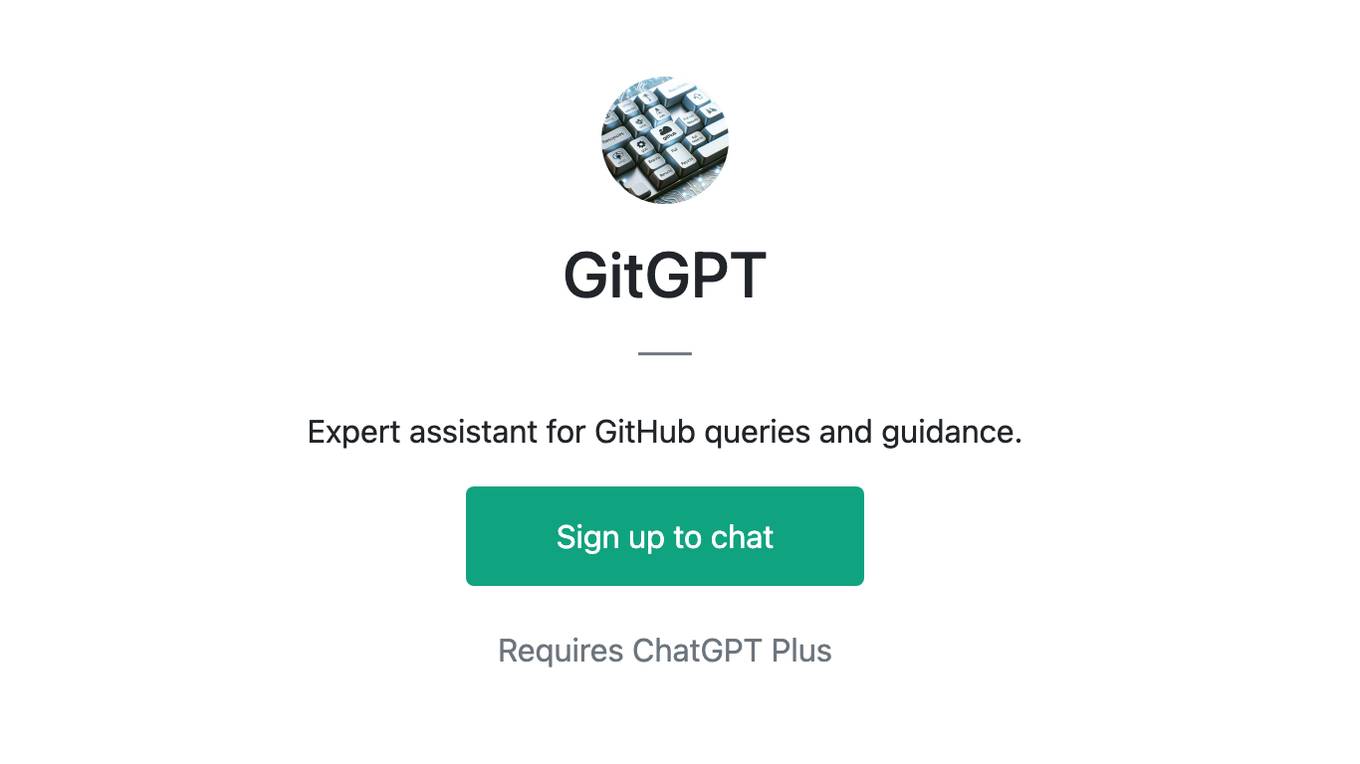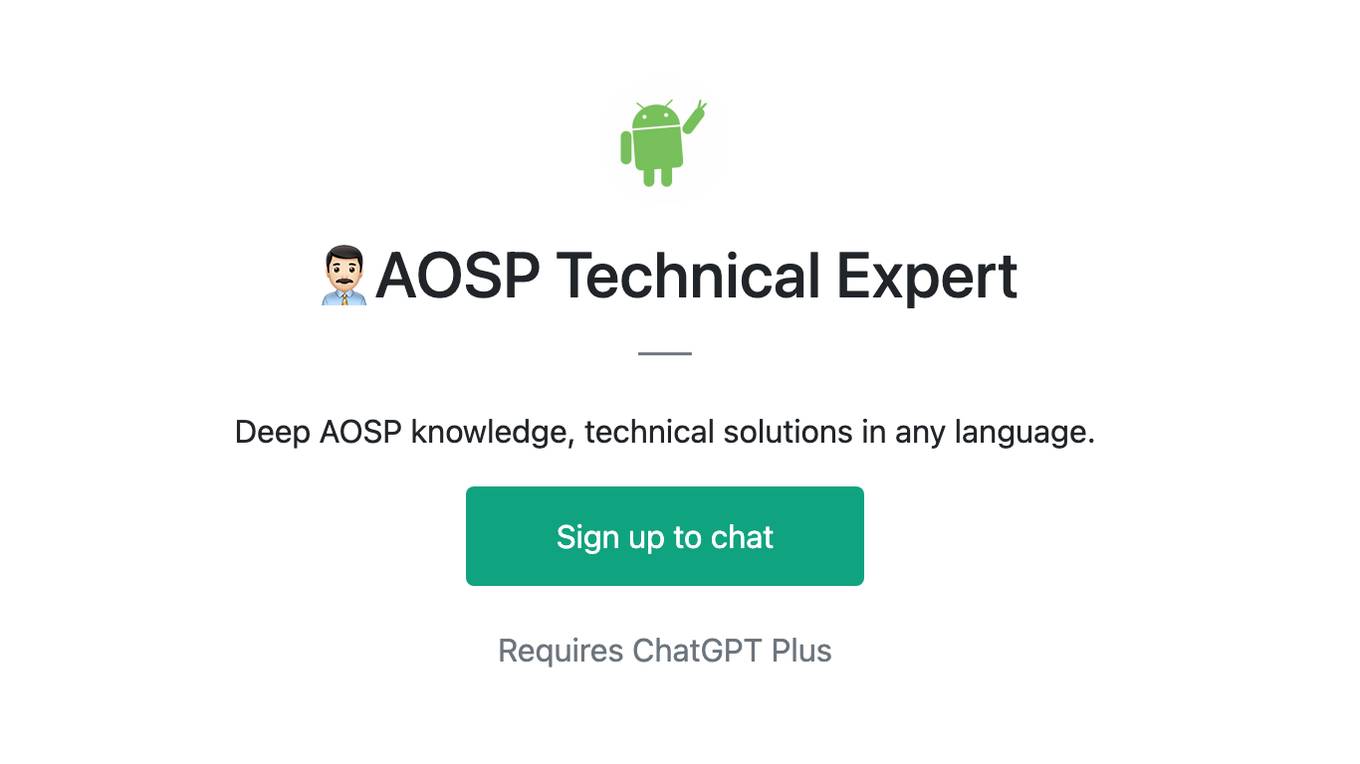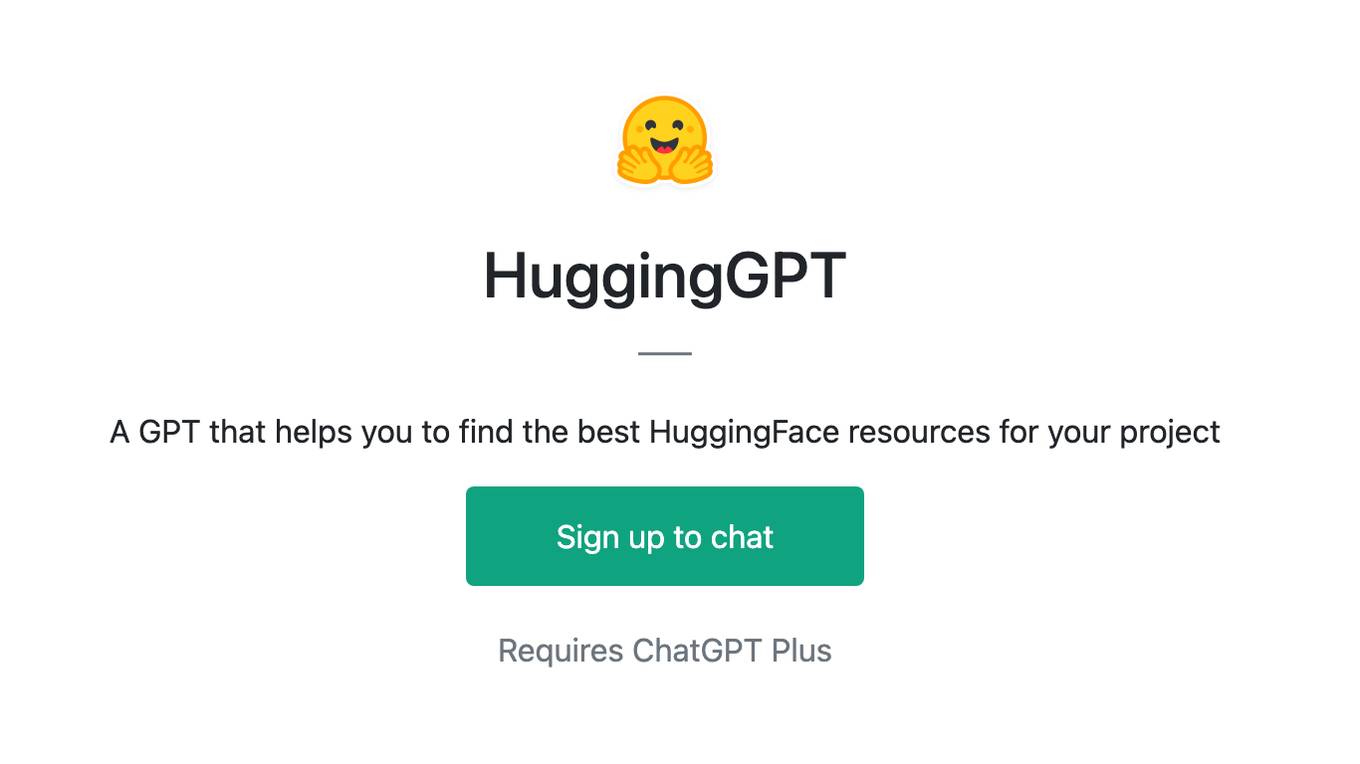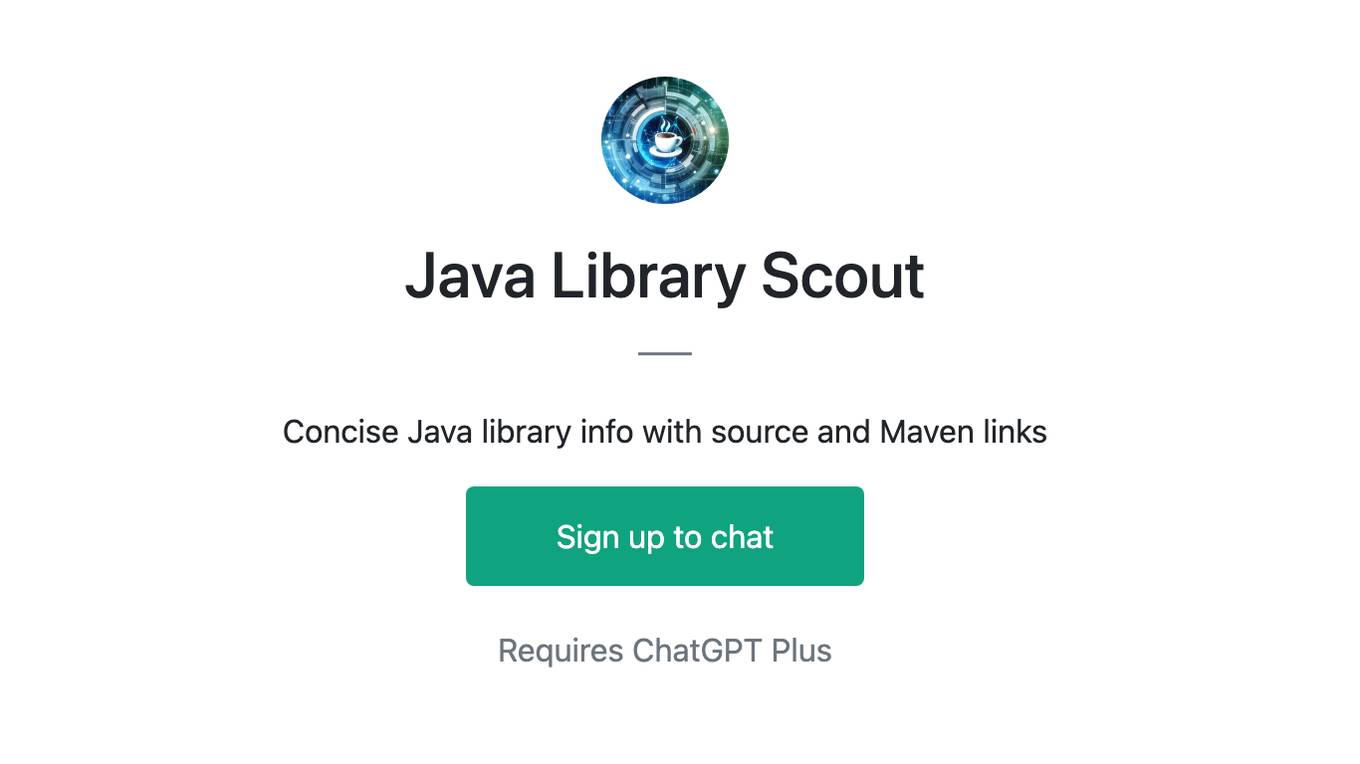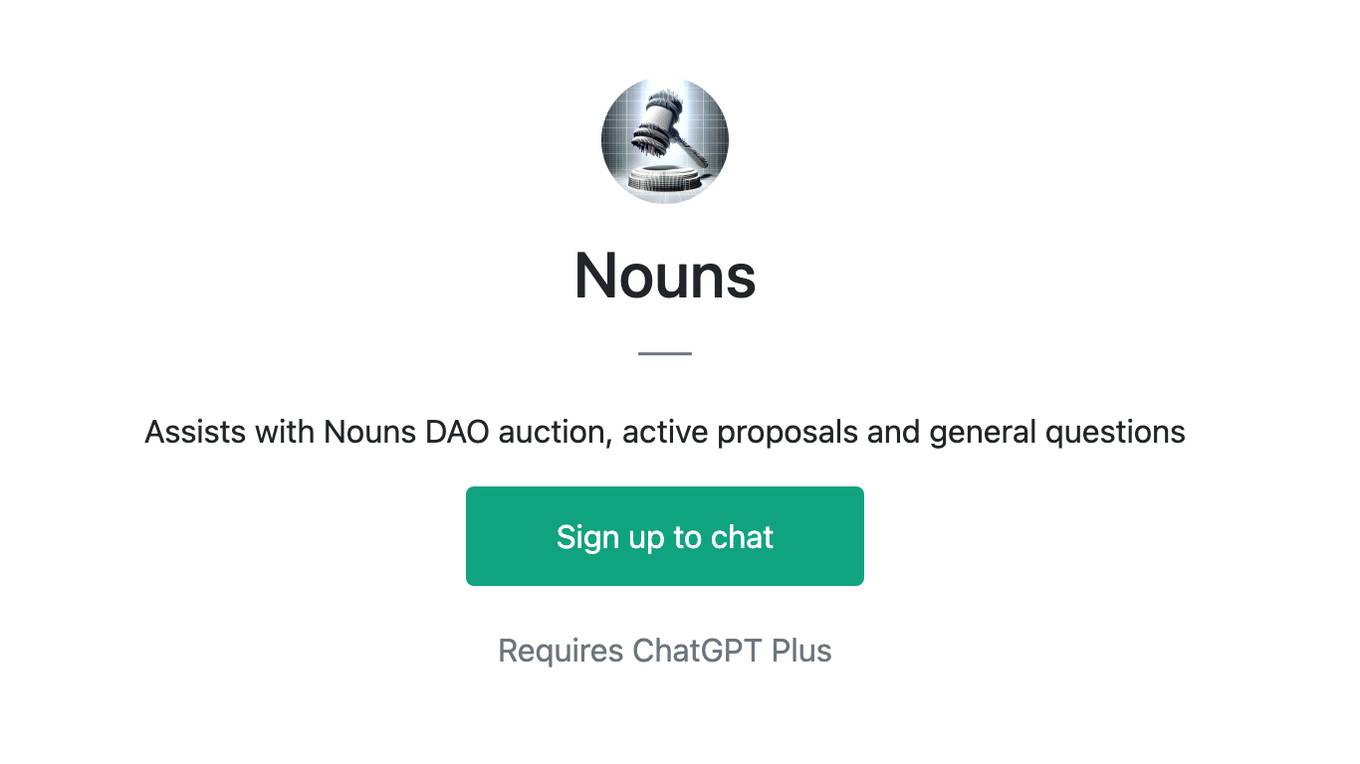Best AI tools for< Contribute Code >
20 - AI tool Sites
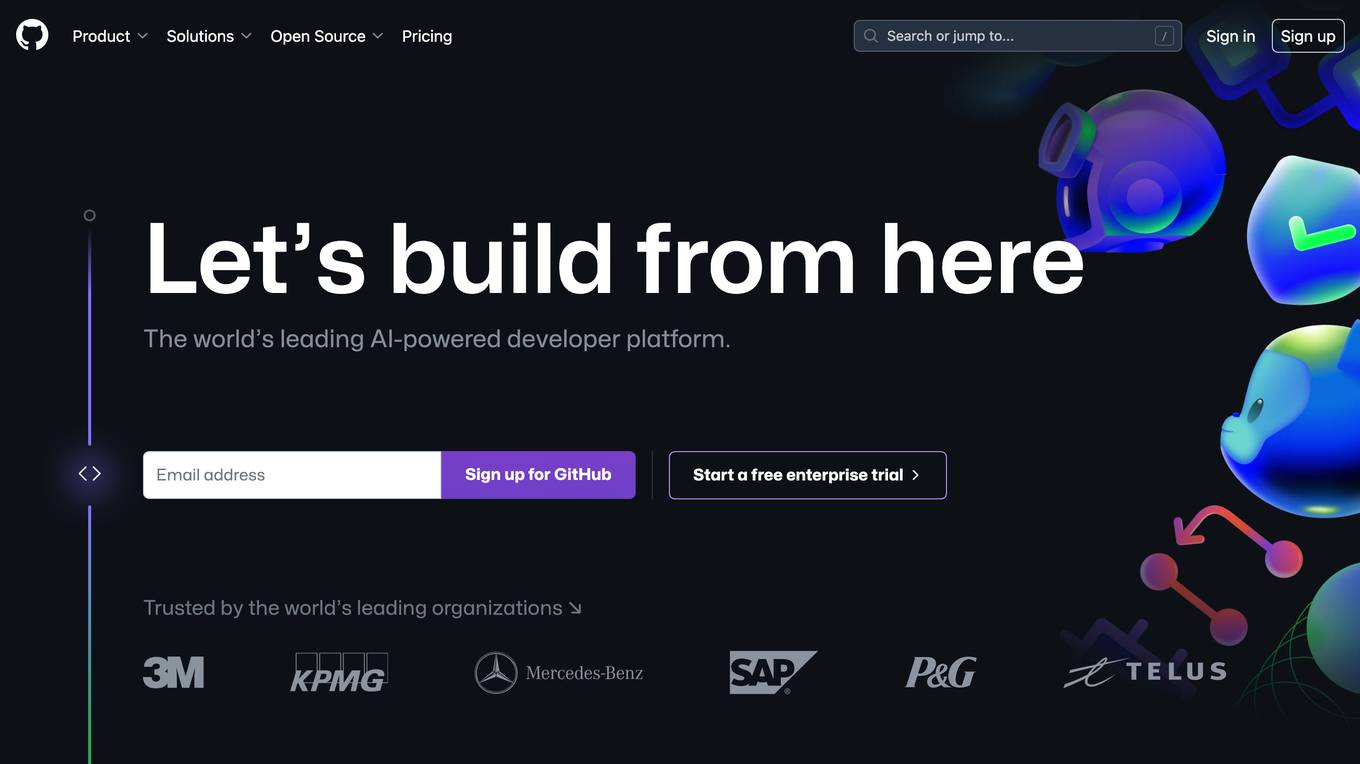
GitHub
GitHub is a collaborative platform that allows users to build and ship software efficiently. GitHub Copilot, an AI-powered tool, helps developers write better code by providing coding assistance, automating workflows, and enhancing security. The platform offers features such as instant dev environments, code review, code search, and collaboration tools. GitHub is widely used by enterprises, small and medium teams, startups, and nonprofits across various industries. It aims to simplify the development process, increase productivity, and improve the overall developer experience.
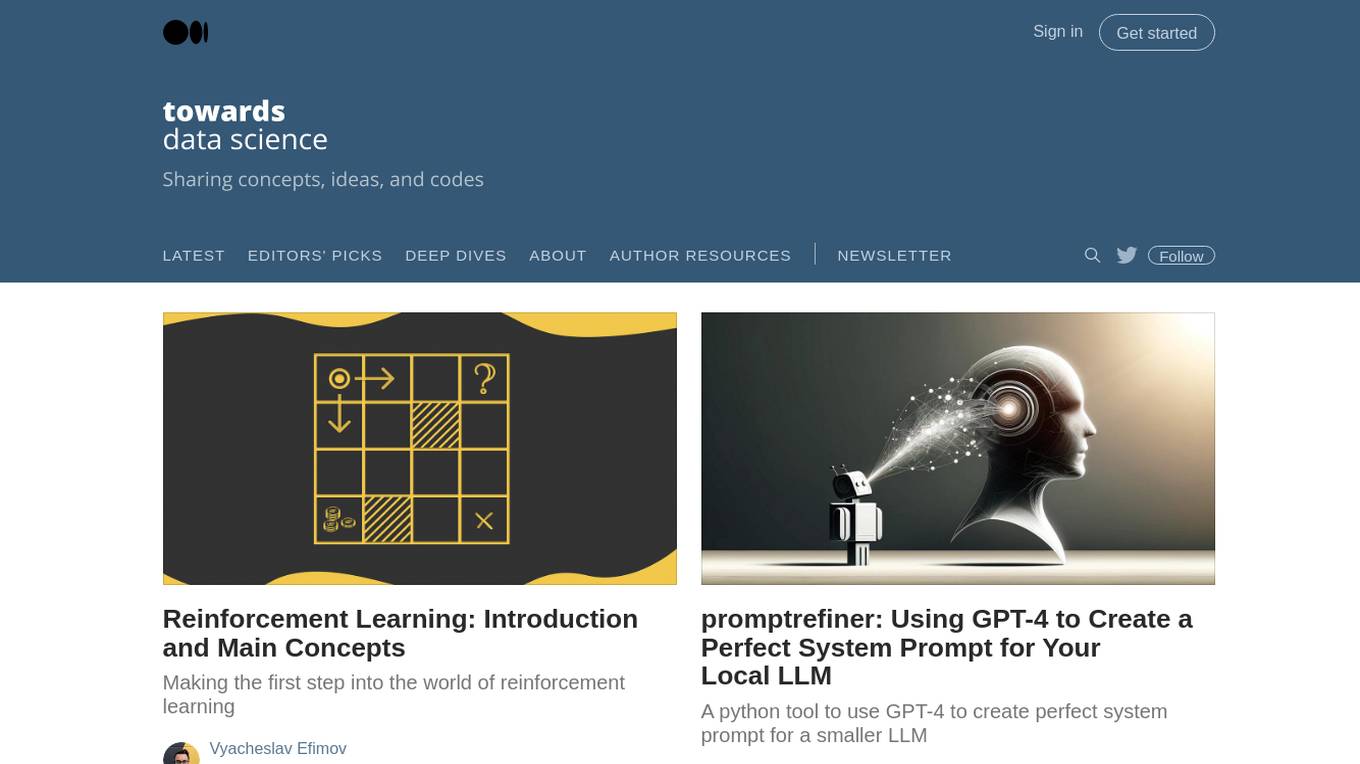
Towards Data Science
Towards Data Science is a Medium publication dedicated to sharing concepts, ideas, and codes in the field of data science. It provides a platform for data scientists, researchers, and practitioners to connect, learn, and contribute to the advancement of the field.

Alignerr
Alignerr is a platform powered by Labelbox that offers subject matter experts the opportunity to align AI models by creating high-quality data in their field of expertise. The platform aims to build the future of Generative AI by enabling experts to contribute to tasks such as coding improvement, data science synthesis, basic math and chemistry comprehension, and creative writing. Alignerr provides a transparent pay structure and allows individuals to work from home on their own schedule, earning up to $150/hr. Contributors can play a pivotal role in shaping the future of artificial intelligence by working on tasks that involve rating or ranking assignments, open rewrite tasks, and multi-modal assignments. The platform emphasizes the responsible development of AI technologies and offers flexibility for professionals to balance work with personal life effortlessly.
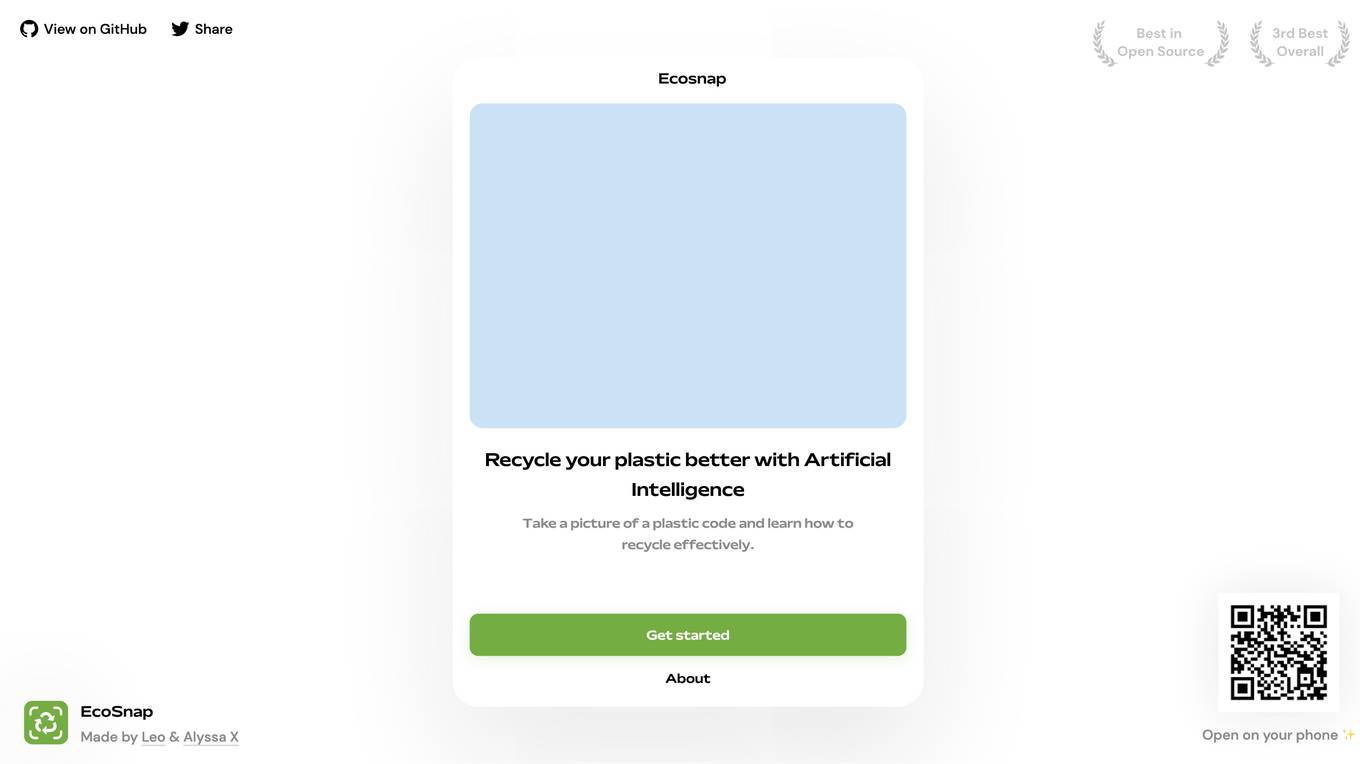
EcoSnap
EcoSnap is an AI tool designed to help users recycle plastic more effectively. By simply taking a picture of a plastic code, users can learn how to recycle the item properly. The tool aims to promote environmental sustainability by providing accurate recycling information based on artificial intelligence technology. EcoSnap is user-friendly and accessible, making it convenient for individuals looking to contribute to a greener planet.
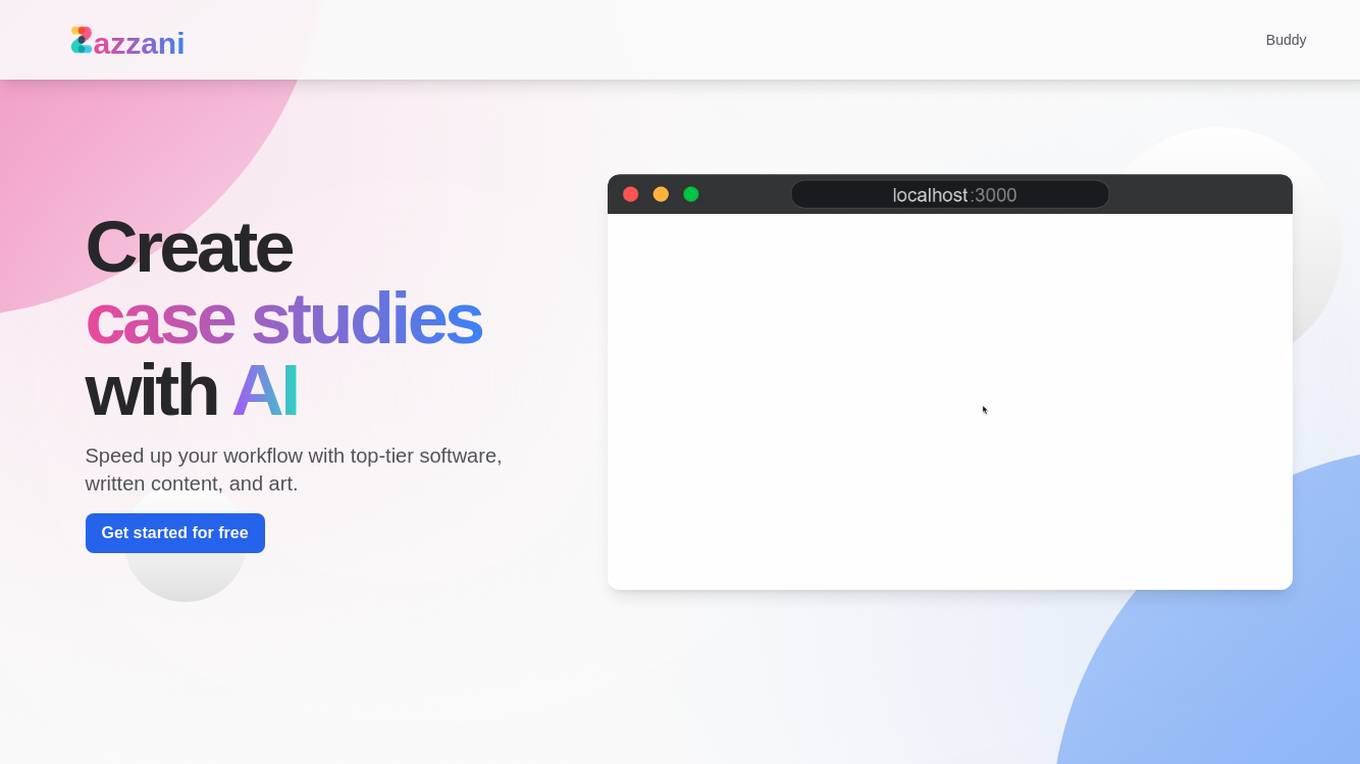
Zazzani AI Buddy
Zazzani AI Buddy is an AI-powered platform that empowers users to create, debug code, write articles, and communicate with AI in multiple languages. It enhances productivity by generating ideas, providing context-specific answers, and eliminating monotony through automated tasks. Users can sign up to receive updates and contribute to the platform's growth. Zazzani AI Buddy aims to streamline workflows and inspire creativity through its innovative AI capabilities.
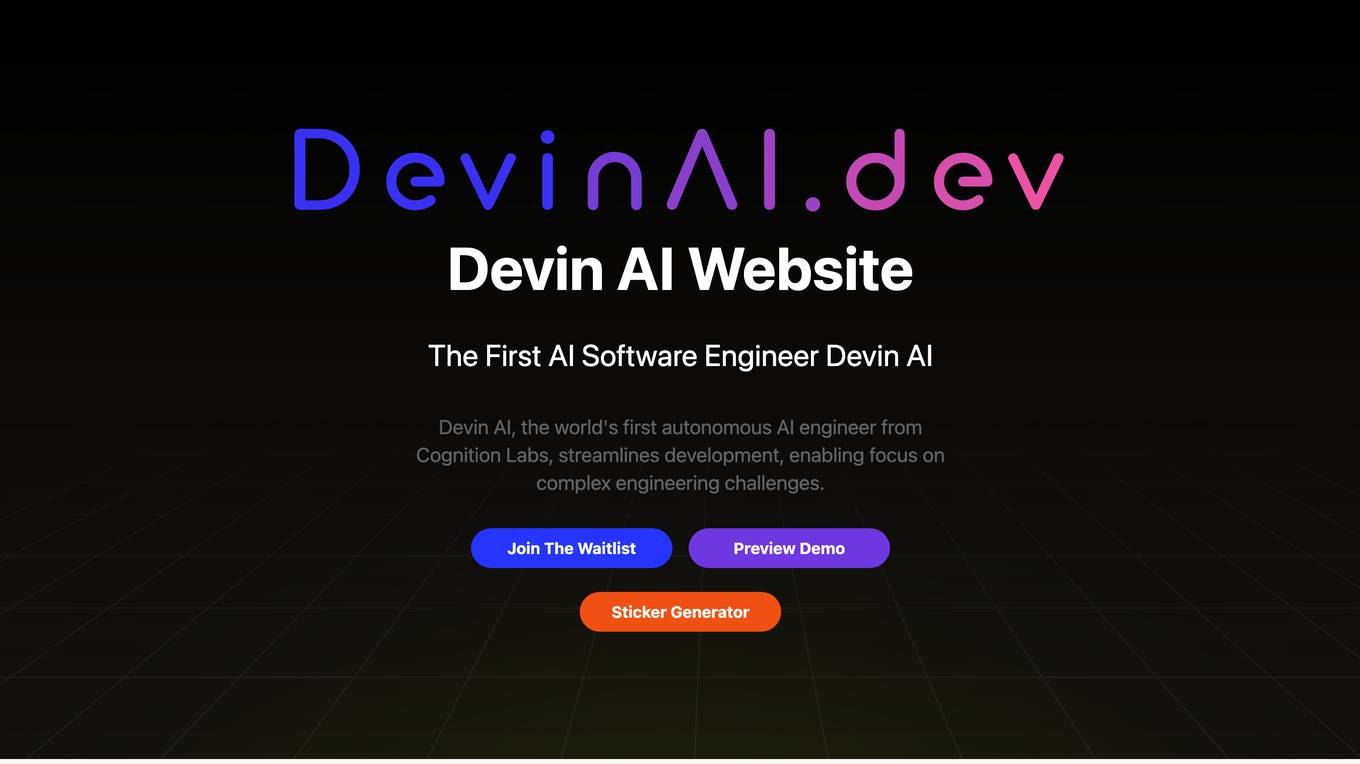
Devin AI
Devin AI, developed by Cognition Labs, is the world's first fully autonomous AI software engineer. It streamlines software development by handling complex tasks, allowing engineers to focus on more challenging aspects. Devin AI possesses advanced programming skills, can manage complex tasks, understands and learns contextually, integrates with developer tools, and offers collaborative features. It can build and deploy applications, detect and fix bugs, contribute to open-source projects, train AI models, and handle GitHub repositories. Devin AI has demonstrated strong performance in issue resolution, surpassing previous AI models. It is currently in early access, with plans for future enhancements and integration with various development tools and platforms.
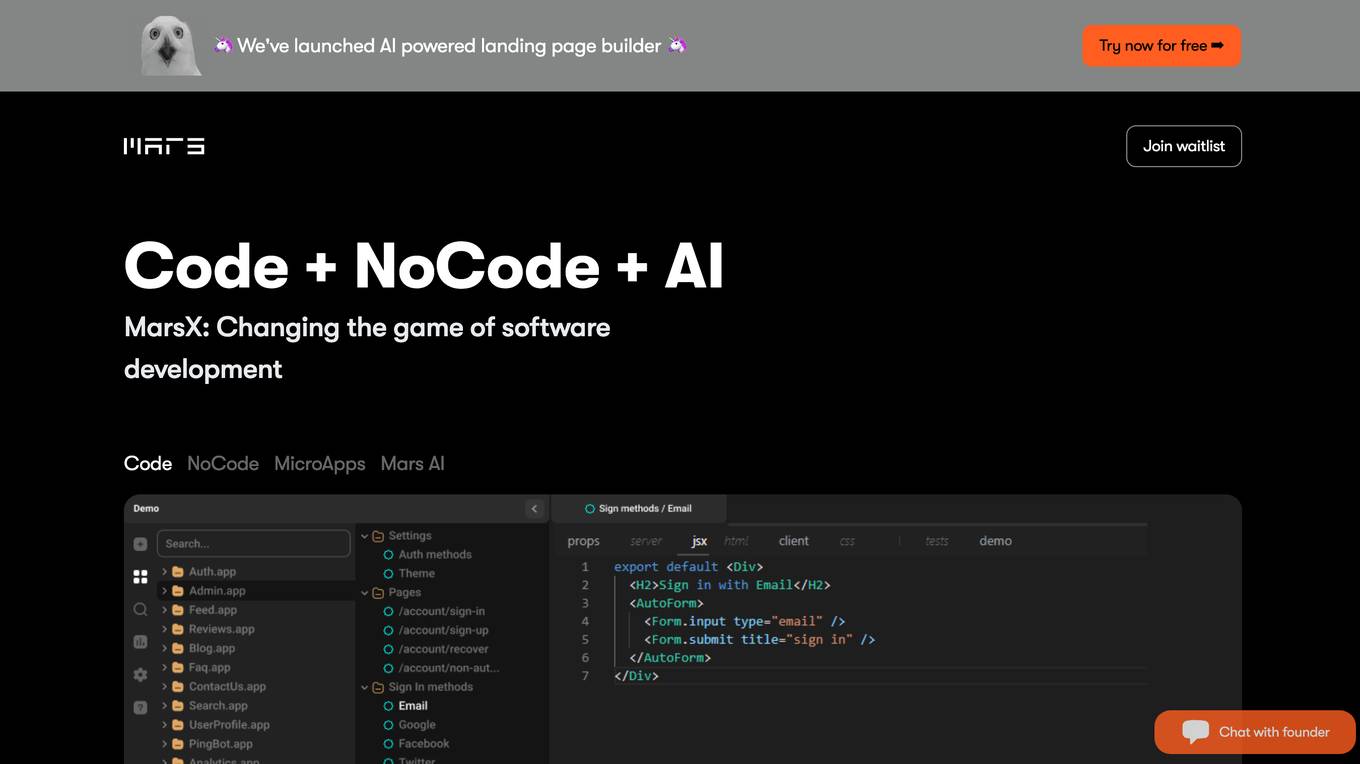
MarsX
MarsX is a revolutionary dev tool that seamlessly integrates AI, NoCode, Code, and MicroApps, empowering developers to create innovative software solutions with unprecedented speed and efficiency. At its core, MarsX offers a comprehensive suite of features that cater to the diverse needs of developers, from AI-powered landing page builders to a vast Micro AppStore brimming with ready-to-use Micro-Apps. These Micro-Apps, meticulously crafted by developers worldwide, provide instant access to a plethora of functionalities, enabling developers to rapidly assemble complex applications without the need for extensive coding. MarsX's commitment to innovation extends beyond its core offerings, as evidenced by its continuous development of cutting-edge tools such as AI website builders and AI-powered UI generators. These tools leverage the transformative power of AI to streamline the development process, allowing developers to focus on their creativity and strategic decision-making. By harnessing the collective knowledge and expertise of a global developer community, MarsX fosters a collaborative environment where developers can share their creations, learn from each other, and contribute to the ever-expanding ecosystem of Micro-Apps. MarsX's mission is to democratize software development, making it accessible to individuals and teams of all skill levels. With its intuitive interface, comprehensive documentation, and a supportive community, MarsX empowers developers to bring their ideas to life, transforming complex software development into an accessible and enjoyable experience.
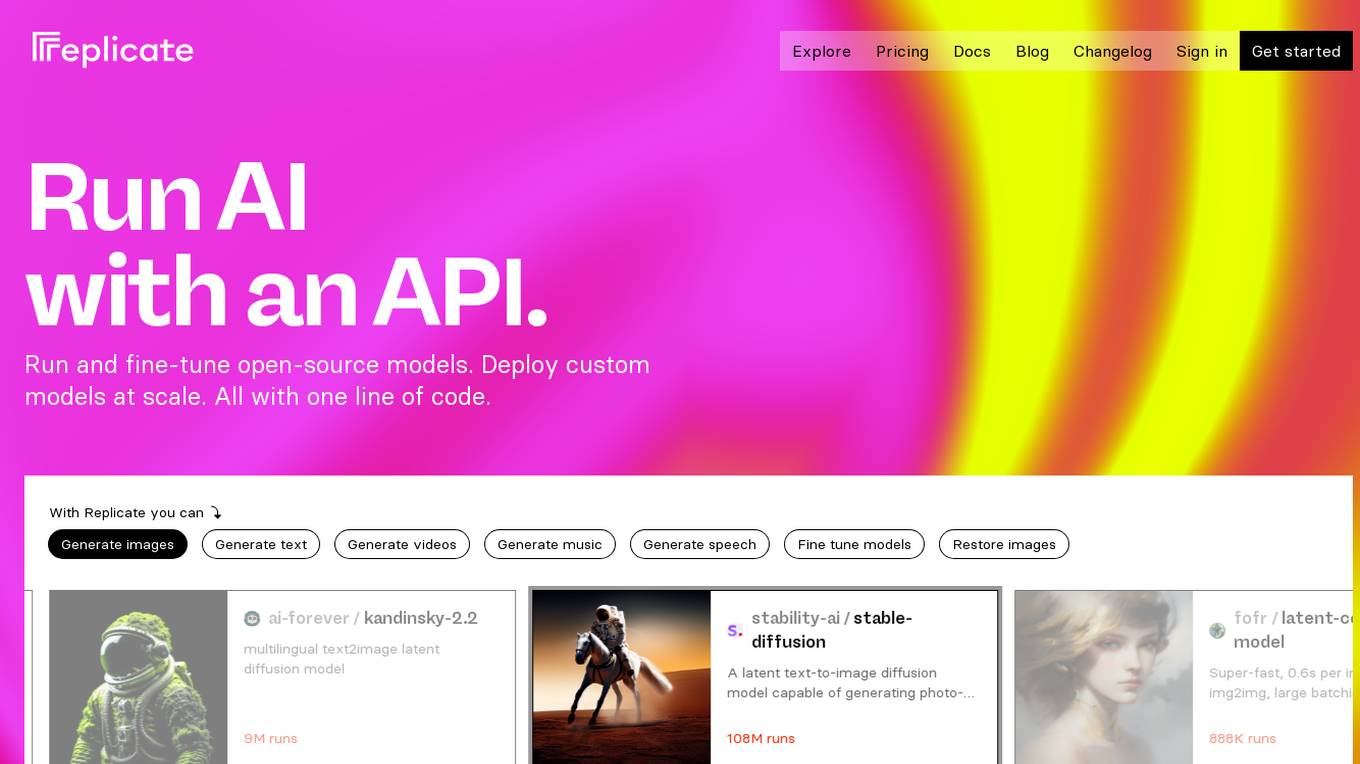
Replicate
Replicate is an AI tool that allows users to run and fine-tune open-source models, deploy custom models at scale, and generate images, text, videos, music, and speech with just one line of code. It provides a platform for the community to contribute and explore thousands of production-ready AI models, enabling users to push the boundaries of AI beyond academic papers and demos. With features like fine-tuning models, deploying custom models, and scaling on Replicate, users can easily create and deploy AI solutions for various tasks.
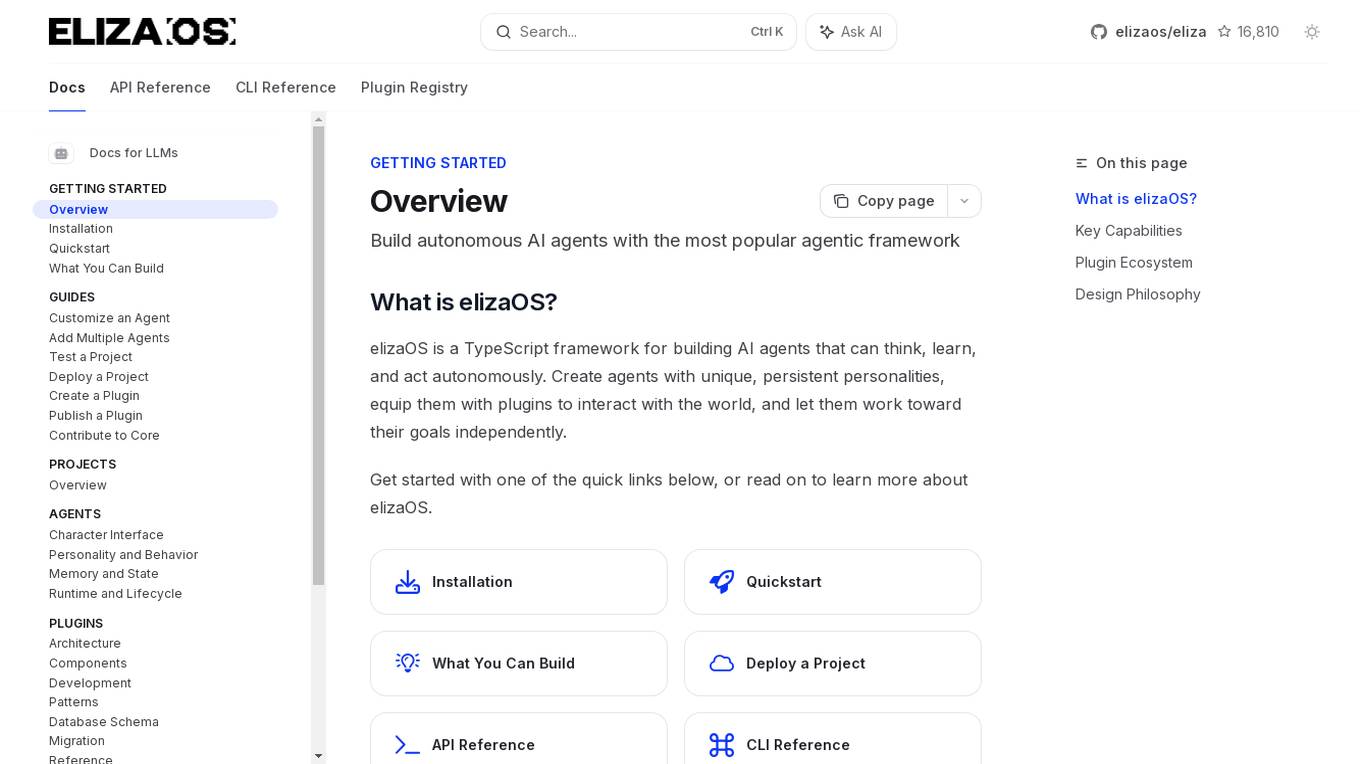
ElizaOS
ElizaOS is a TypeScript framework designed for building autonomous AI agents that can think, learn, and act independently. It offers a wide range of capabilities, including developing unique personalities, interacting with the real world through various plugins, executing complex action chains triggered by natural language, and remembering interactions with persistent memory. The framework comes with a rich plugin ecosystem, allowing users to mix and match capabilities without modifying core code. ElizaOS is ideal for builders who want to quickly ship projects, experiment freely, and contribute to the open-source community.

Replicate
Replicate is an AI tool that allows users to run and fine-tune models, deploy custom models at scale, and generate various types of content such as images, videos, music, and text with just one line of code. It provides access to a wide range of high-quality models contributed by the community, enabling users to explore, fine-tune, and deploy AI models efficiently. Replicate aims to make AI accessible and practical for real-world applications beyond academic research and demos.
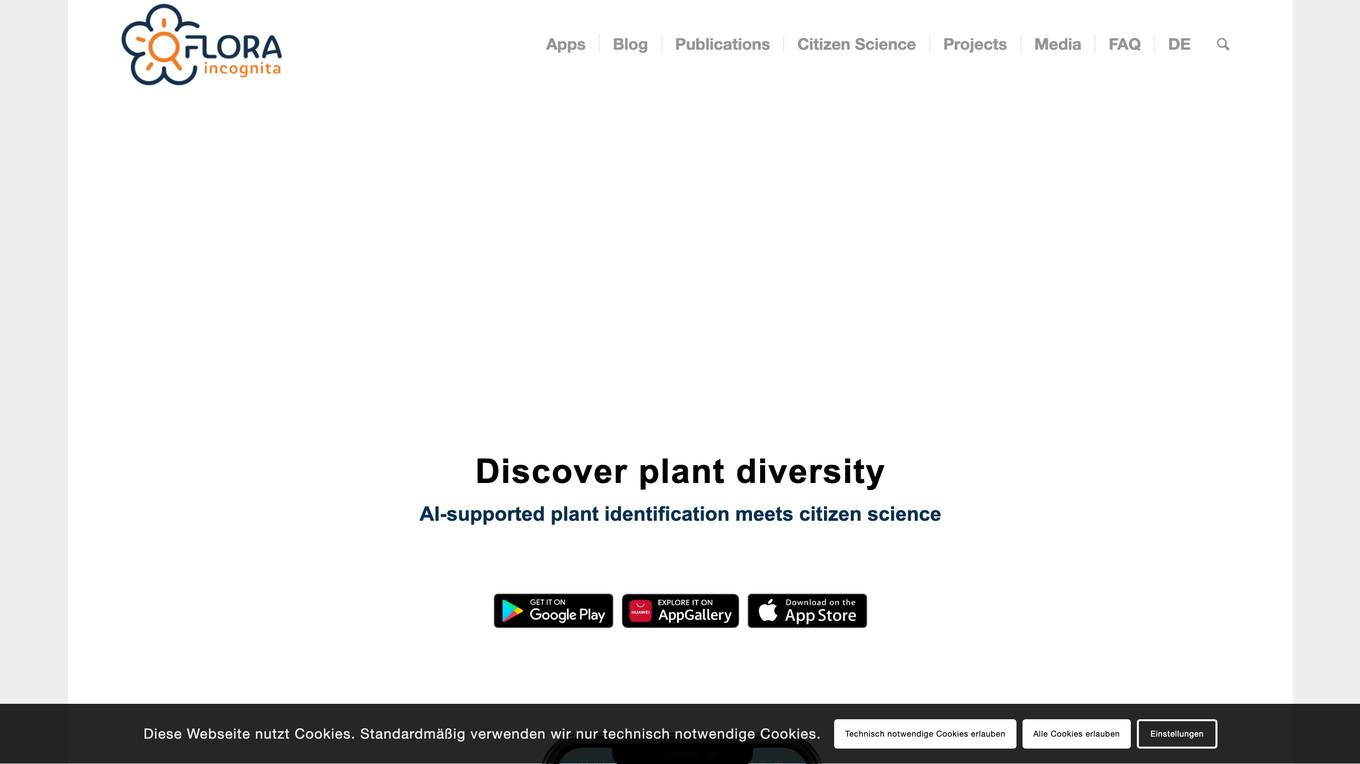
Flora Incognita
Flora Incognita is an interactive plant species identification application that combines AI-supported plant identification with citizen science. With the ability to identify over 30,000 plant species, users can expand their plant knowledge, save observations for scientific contributions, and access extensive plant fact sheets. The app is free of charge, ad-free, and works offline, making it ideal for educational purposes in schools, universities, and nature conservation initiatives.
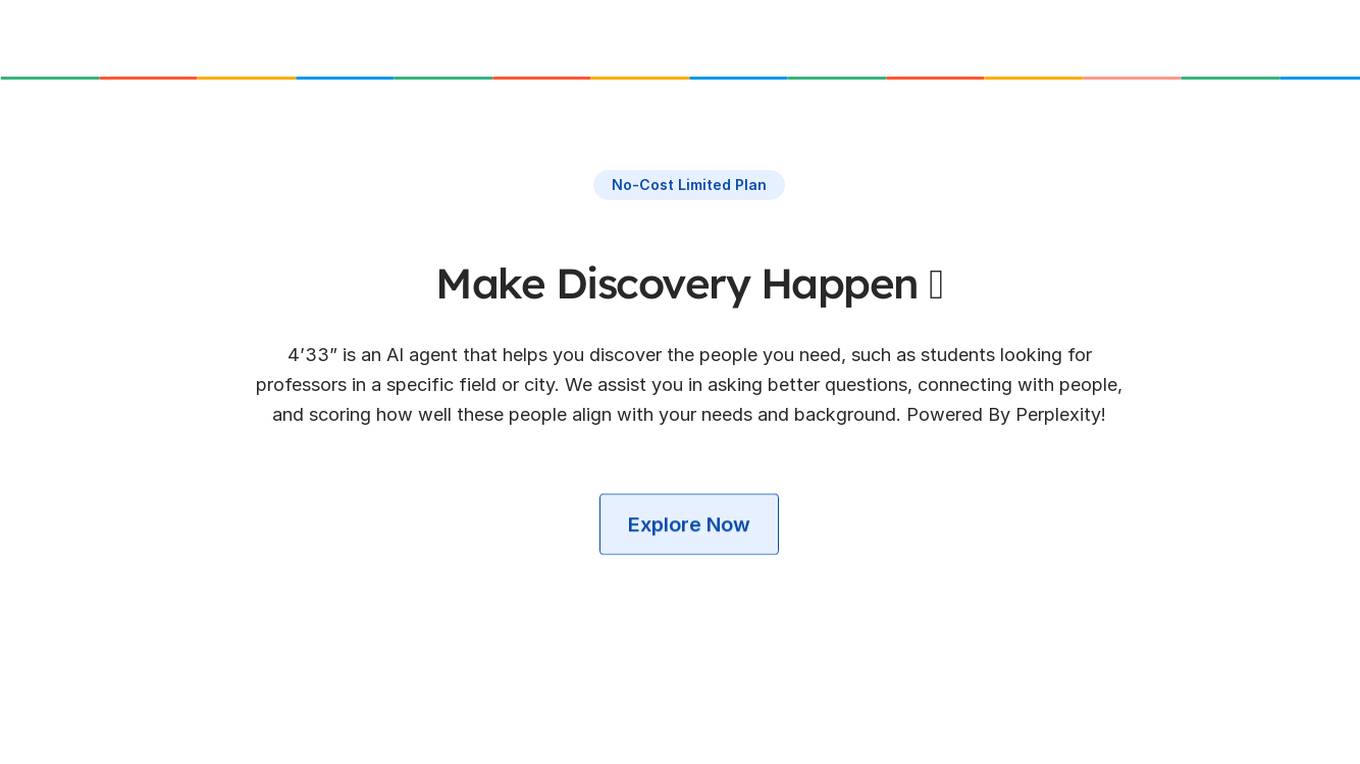
4'33"
4'33" is an AI agent designed to help students and researchers discover the people they need, such as students seeking professors in a specific field or city. The tool assists in asking better questions, connecting with individuals, and evaluating how well they align with the user's requirements and background. Powered by Perplexity, 4'33" offers a platform for connecting people and answering questions, alongside AI technology. The tool aims to facilitate easier and faster connections between users and relevant individuals, enabling knowledge sharing and collaboration.
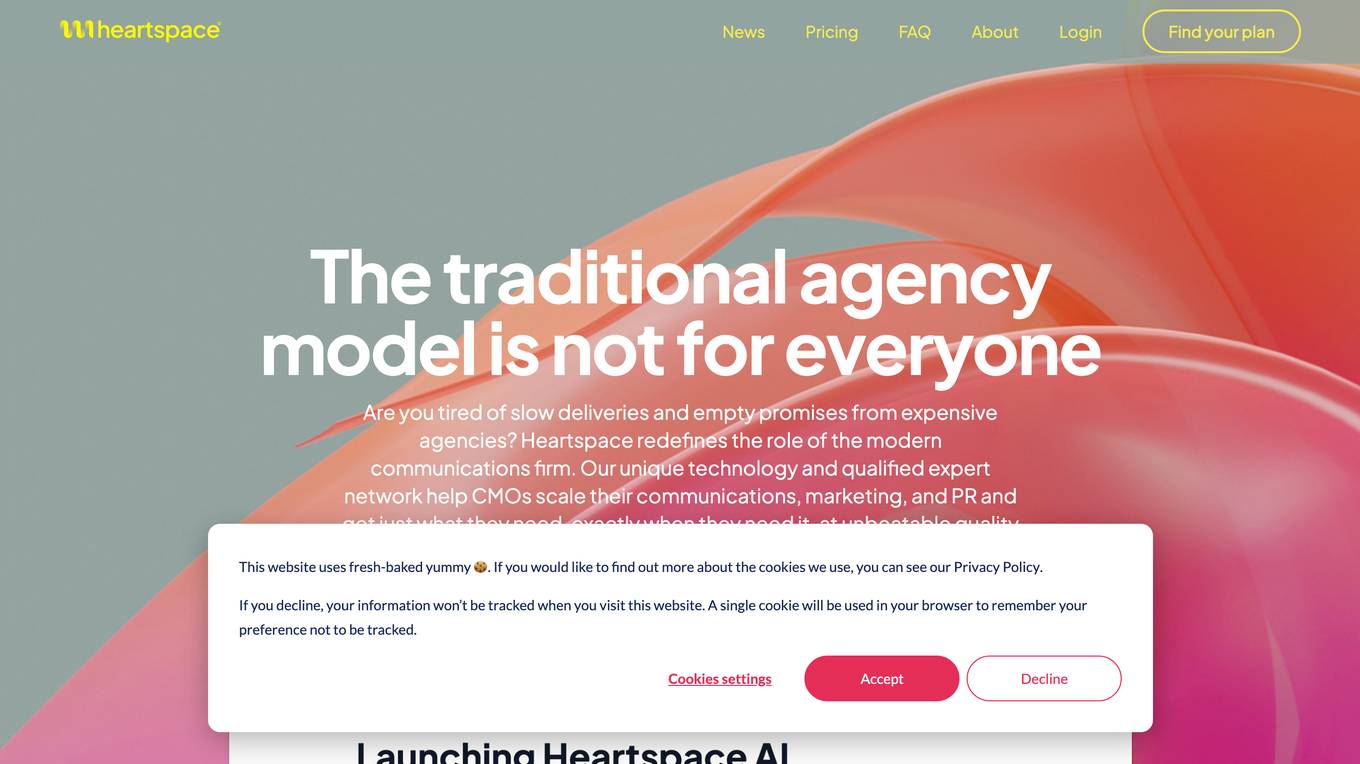
Heartspace
Heartspace is an outcome-based PR service designed for B2B tech companies. It offers a managed PR process that includes strategy, journalist relations, outreach, and follow-up, delivering results with minimal time investment from the user. Heartspace utilizes proprietary infrastructure for PR delivery, focusing on measurable outcomes rather than hourly billing. The service is GDPR compliant and prioritizes data security, offering enterprise-level protection and isolation. Heartspace provides different service options tailored to various needs, such as Managed PR, Assisted PR, and Agency OS.
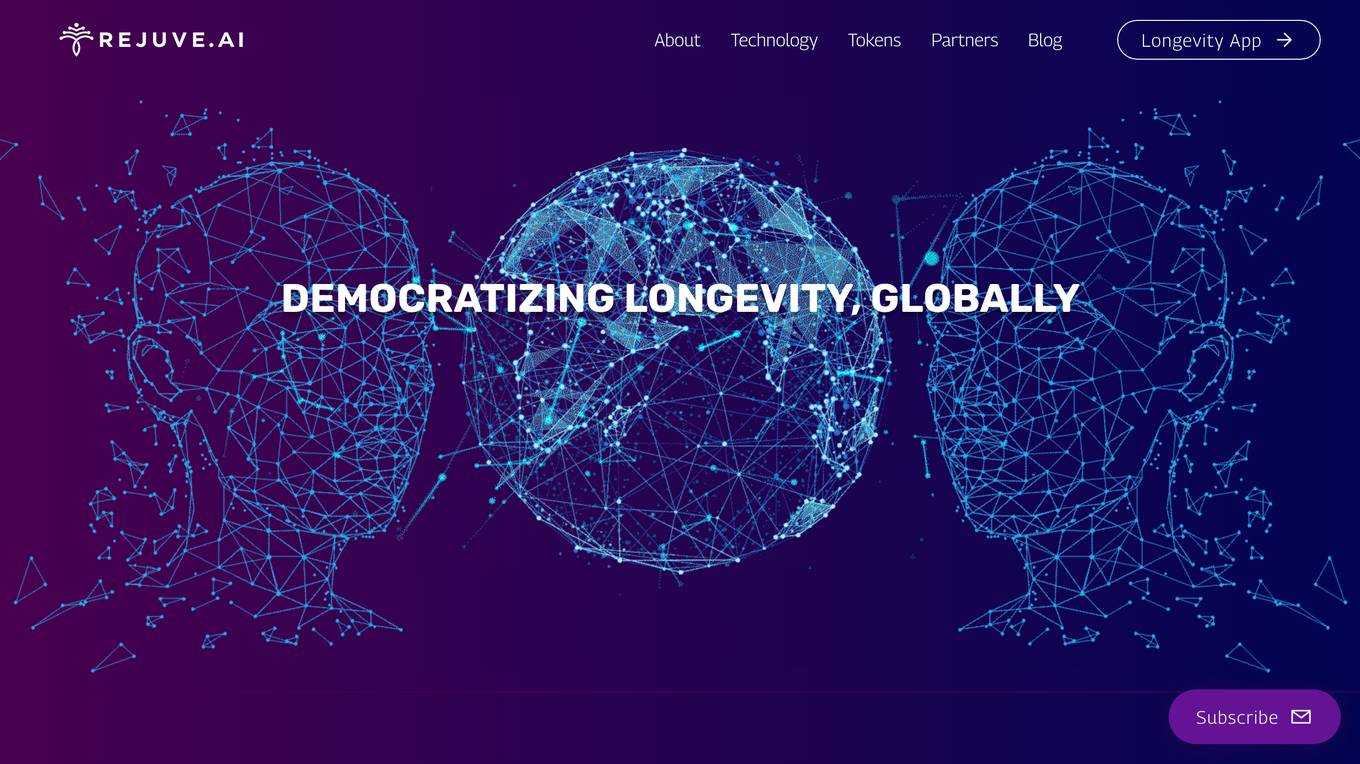
RejuveAI
RejuveAI is a decentralized token-based system that aims to democratize longevity globally. The Longevity App allows users to monitor essential health metrics, enhance lifespan, and earn RJV tokens. The application leverages revolutionary AI technology to analyze human body functions in-depth, providing insights for aging combat. RejuveAI collaborates with researchers, clinics, and data enthusiasts to ensure innovative outcomes are affordable and accessible. The platform also offers exclusive discounts on travel, supplements, medical tests, and longevity therapies.

IX Coach
IX Coach is an AI-powered interdisciplinary coaching platform that helps individuals and teams achieve their goals. The platform provides users with access to a network of certified coaches, as well as a variety of tools and resources to support their coaching journey.

Almaya
Almaya is a digital autobiography platform that allows users to record and share their stories, advice, and life lessons with their loved ones. It is a safe and private way to preserve memories and connect with family and friends, both now and in the future. Almaya uses artificial intelligence to help users create a personalized and interactive autobiography that can be easily shared and accessed from anywhere, anytime.
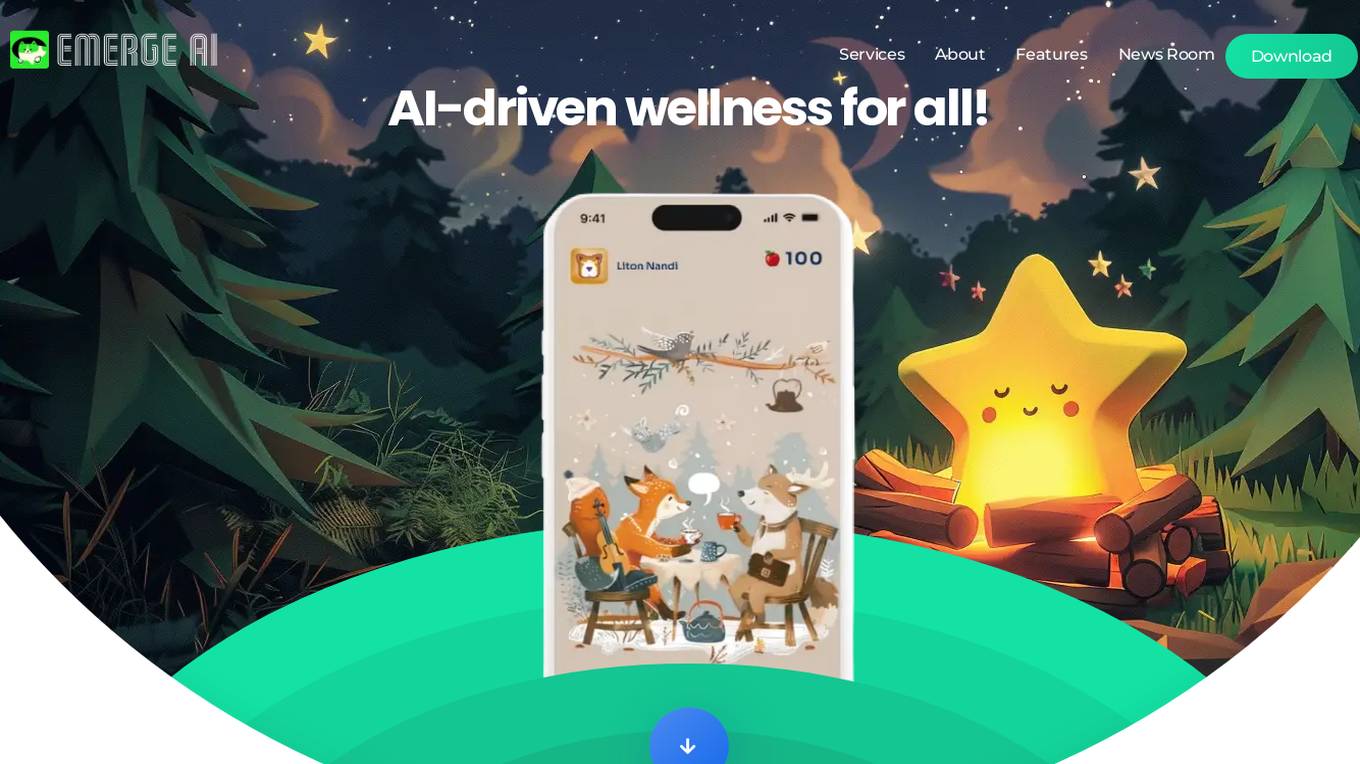
Emerge AI
Emerge AI is an AI-driven wellness application that offers a unique experience by providing AI-generated digital companions to support users on their wellness journey. Through innovative NFT technology, users can earn tokens by achieving fitness milestones, contributing to the growth of their digital pets. The app also focuses on networking with friends to create a vibrant community around wellness and technology. With a comprehensive suite of features, Emerge AI aims to empower users in achieving wellness excellence.
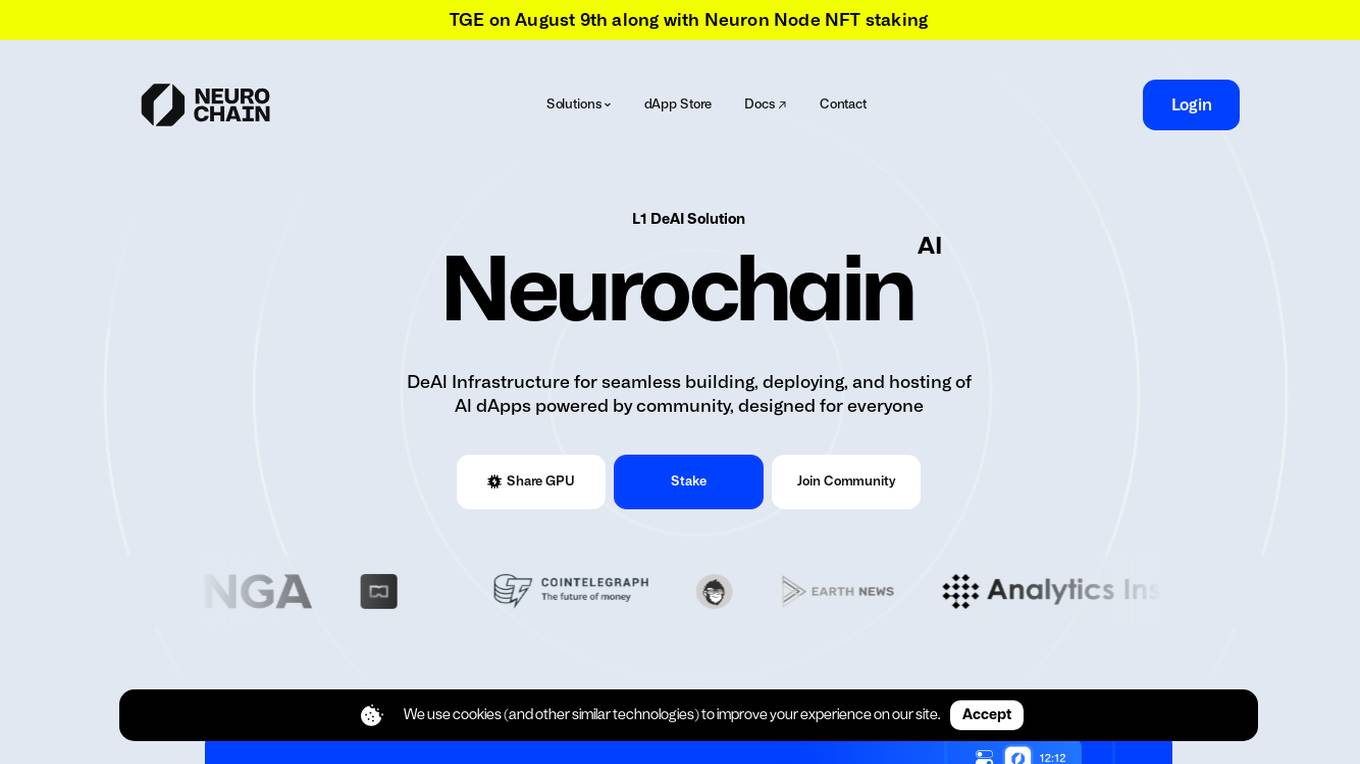
Neurochain AI
Neurochain AI is a decentralized AI-as-a-Service (DeAIAS) network that provides an innovative solution for building, launching, and using AI-powered decentralized applications (dApps). It offers a community-driven approach to AI development, incentivizing contributors with $NCN rewards. The platform aims to address challenges in the centralized AI landscape by democratizing AI development and leveraging global computing resources. Neurochain AI also features a community-powered content generation engine and is developing its own independent blockchain. The team behind Neurochain AI includes experienced professionals in infrastructure, cryptography, computer science, and AI research.

Pl@ntNet
Pl@ntNet is a citizen science project available as an application that helps you identify plants from your photos. It is a collaborative project that brings together scientists, naturalists, and citizens from all over the world to collect and share data on plant diversity. The app uses artificial intelligence to identify plants from photos, and the data collected is used to create a global database of plant diversity. Pl@ntNet is free to use and is available in over 20 languages.
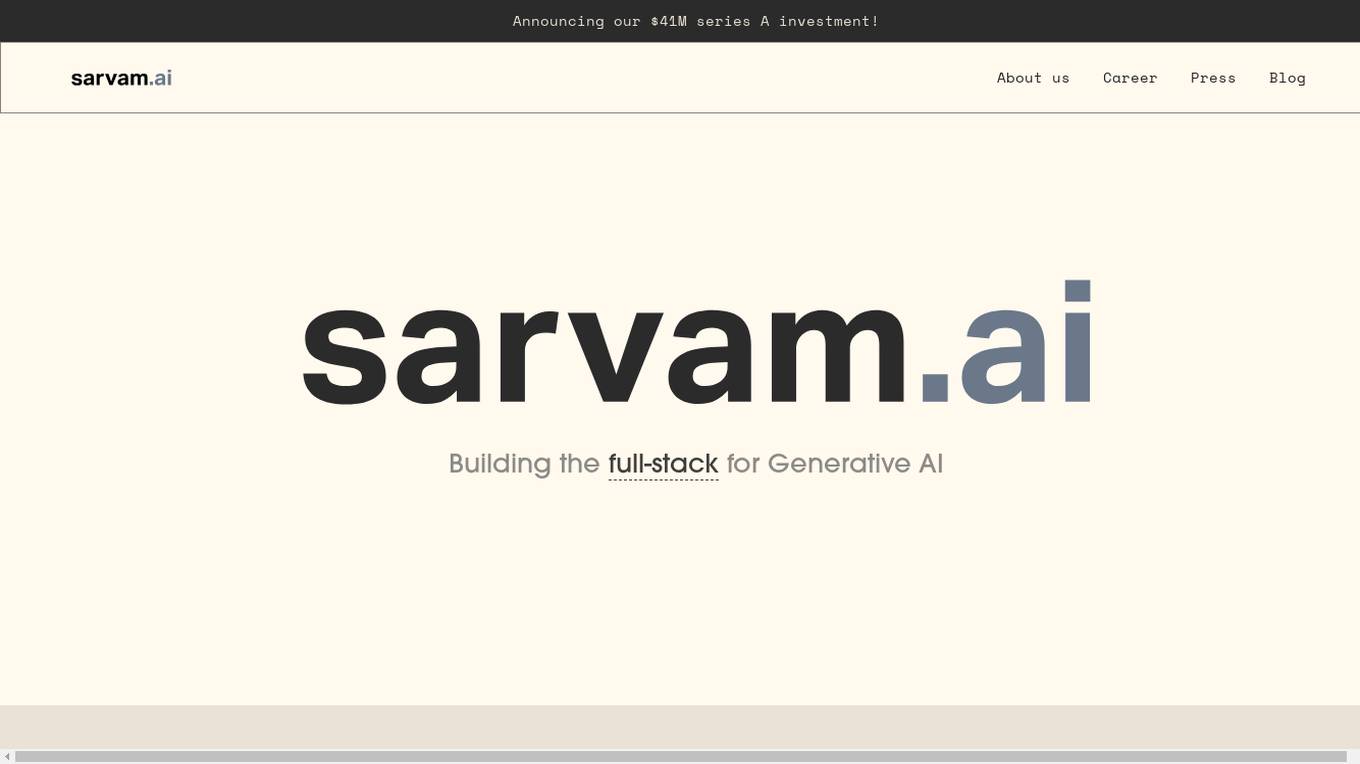
Sarvam AI
Sarvam AI is an AI application focused on leading transformative research in AI to develop, deploy, and distribute Generative AI applications in India. The platform aims to build efficient large language models for India's diverse linguistic culture and enable new GenAI applications through bespoke enterprise models. Sarvam AI is also developing an enterprise-grade platform for developing and evaluating GenAI apps, while contributing to open-source models and datasets to accelerate AI innovation.
15 - Open Source AI Tools

NaLLM
The NaLLM project repository explores the synergies between Neo4j and Large Language Models (LLMs) through three primary use cases: Natural Language Interface to a Knowledge Graph, Creating a Knowledge Graph from Unstructured Data, and Generating a Report using static and LLM data. The repository contains backend and frontend code organized for easy navigation. It includes blog posts, a demo database, instructions for running demos, and guidelines for contributing. The project aims to showcase the potential of Neo4j and LLMs in various applications.
lobe-icons
Lobe Icons is a collection of popular AI / LLM Model Brand SVG logos and icons. It features lightweight and scalable icons designed with highly optimized scalable vector graphics (SVG) for optimal performance. The collection is tree-shakable, allowing users to import only the icons they need to reduce the overall bundle size of their projects. Lobe Icons has an active community of designers and developers who can contribute and seek support on platforms like GitHub and Discord. The repository supports a wide range of brands across different models, providers, and applications, with more brands continuously being added through contributions. Users can easily install Lobe UI with the provided commands and integrate it with NextJS for server-side rendering. Local development can be done using Github Codespaces or by cloning the repository. Contributions are welcome, and users can contribute code by checking out the GitHub Issues. The project is MIT licensed and maintained by LobeHub.
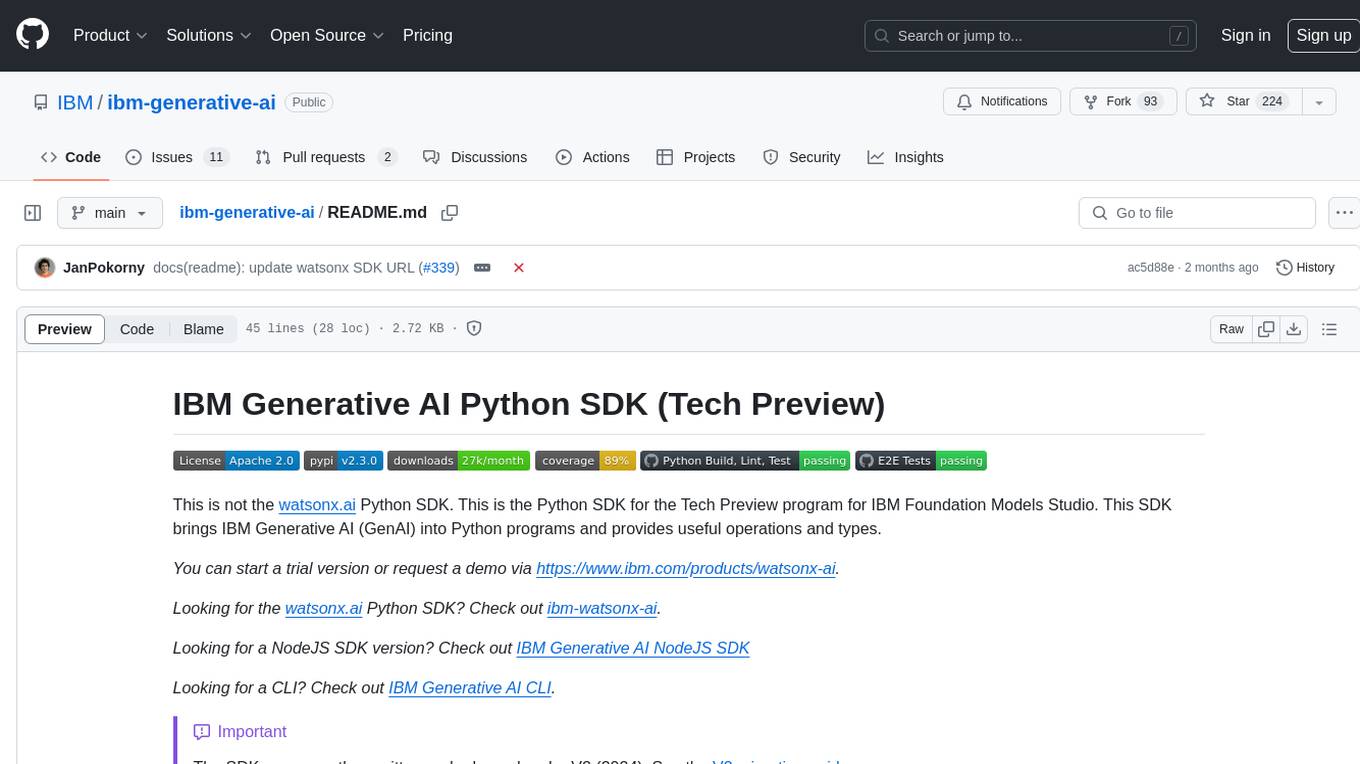
ibm-generative-ai
IBM Generative AI Python SDK is a tool designed for the Tech Preview program for IBM Foundation Models Studio. It brings IBM Generative AI (GenAI) into Python programs, offering various operations and types. Users can start a trial version or request a demo via the provided link. The SDK was recently rewritten and released under V2 in 2024, with a migration guide available. Contributors are welcome to participate in the open-source project by contributing documentation, tests, bug fixes, and new functionality.
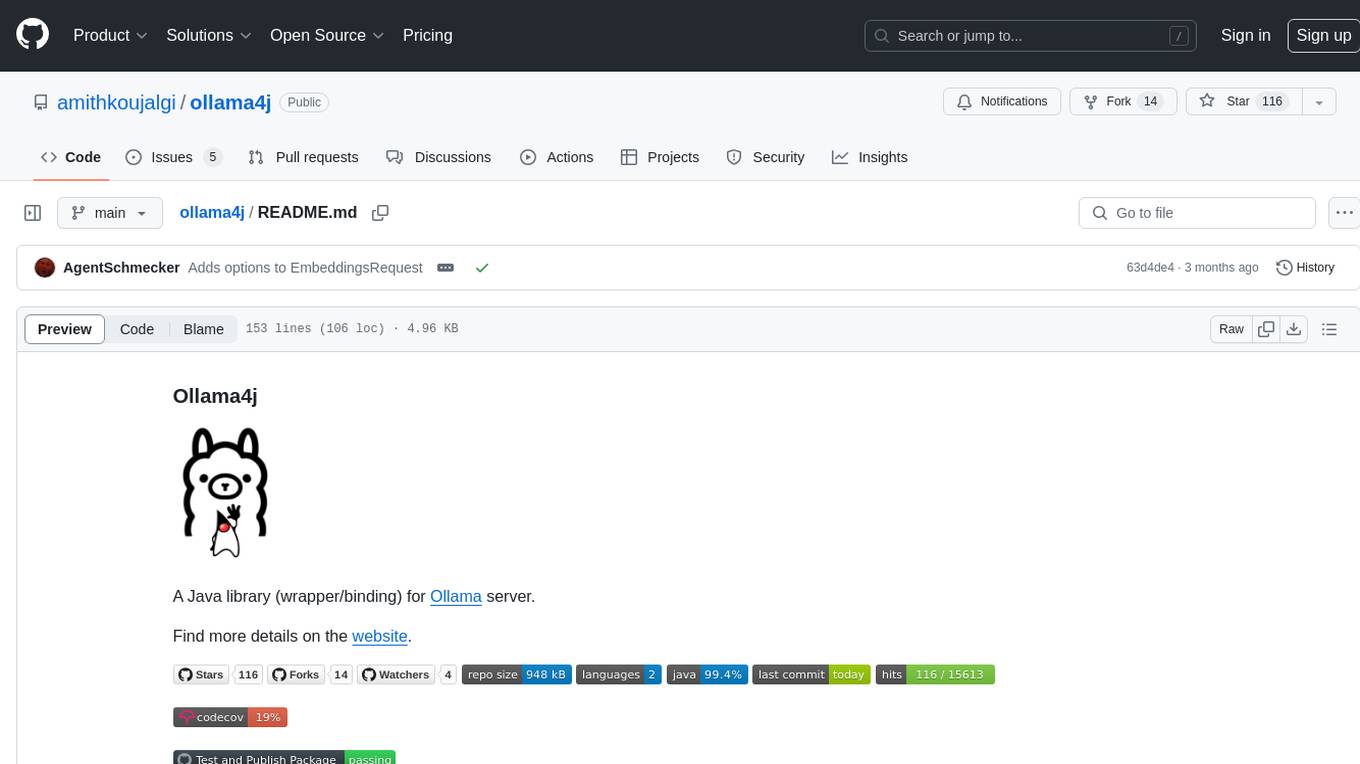
ollama4j
Ollama4j is a Java library that serves as a wrapper or binding for the Ollama server. It facilitates communication with the Ollama server and provides models for deployment. The tool requires Java 11 or higher and can be installed locally or via Docker. Users can integrate Ollama4j into Maven projects by adding the specified dependency. The tool offers API specifications and supports various development tasks such as building, running unit tests, and integration tests. Releases are automated through GitHub Actions CI workflow. Areas of improvement include adhering to Java naming conventions, updating deprecated code, implementing logging, using lombok, and enhancing request body creation. Contributions to the project are encouraged, whether reporting bugs, suggesting enhancements, or contributing code.
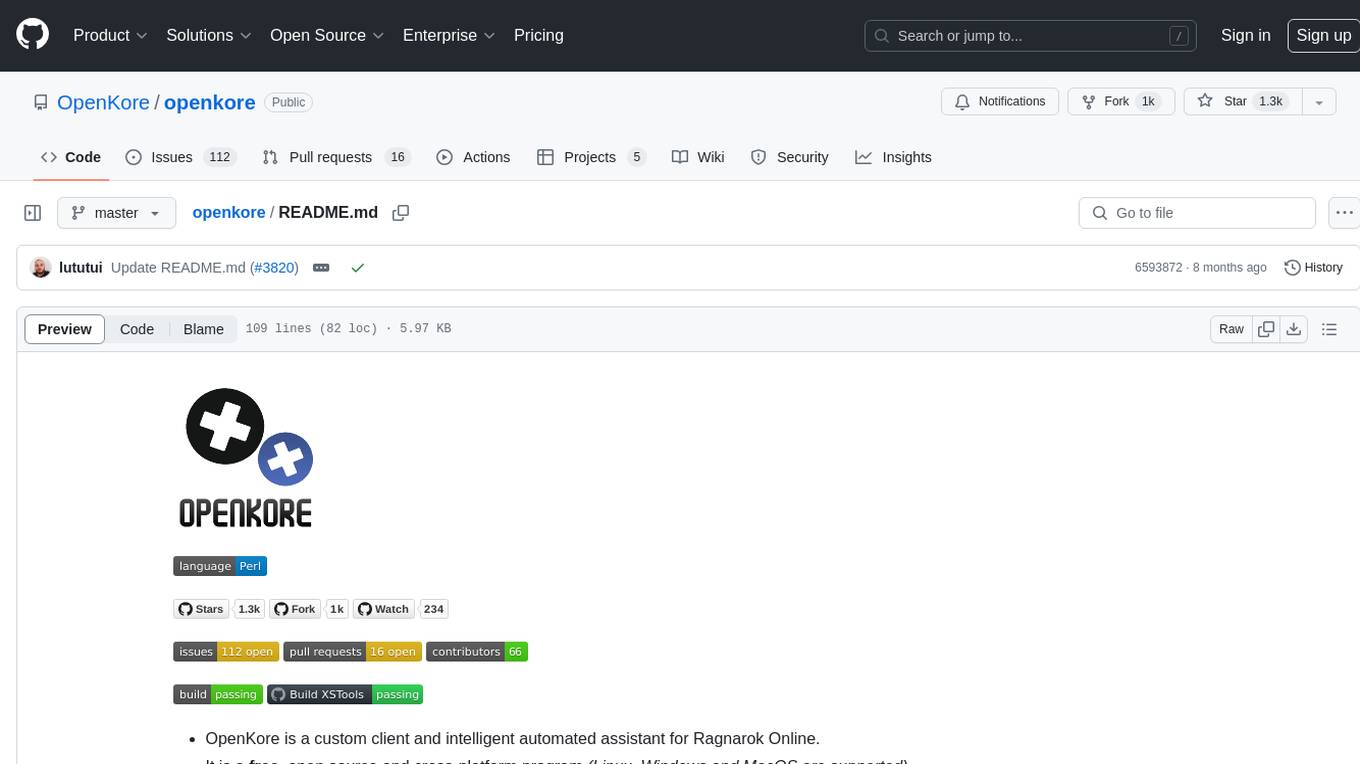
openkore
OpenKore is a custom client and intelligent automated assistant for Ragnarok Online. It is a free, open source, and cross-platform program (Linux, Windows, and MacOS are supported). To run OpenKore, you need to download and extract it or clone the repository using Git. Configure OpenKore according to the documentation and run openkore.pl to start. The tool provides a FAQ section for troubleshooting, guidelines for reporting issues, and information about botting status on official servers. OpenKore is developed by a global team, and contributions are welcome through pull requests. Various community resources are available for support and communication. Users are advised to comply with the GNU General Public License when using and distributing the software.
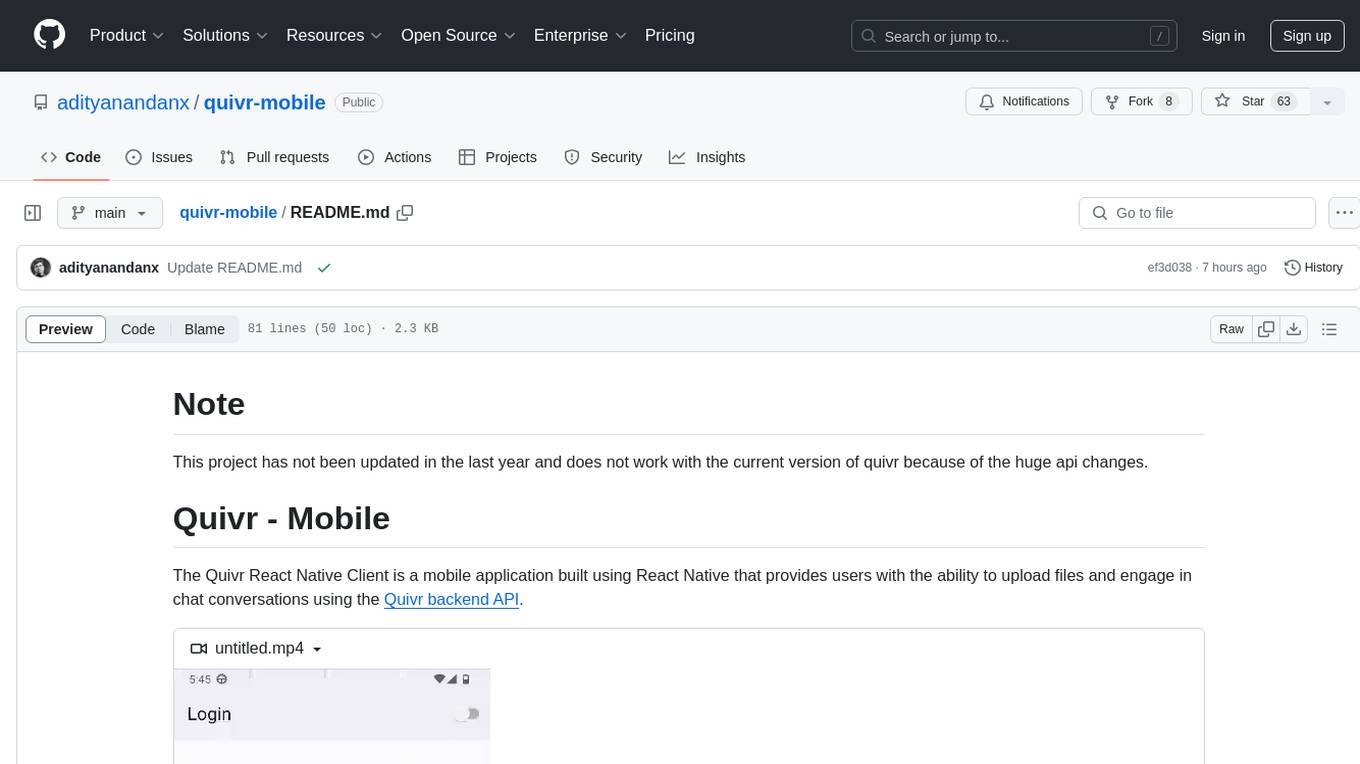
quivr-mobile
Quivr-Mobile is a React Native mobile application that allows users to upload files and engage in chat conversations using the Quivr backend API. It supports features like file upload and chatting with a language model about uploaded data. The project uses technologies like React Native, React Native Paper, and React Native Navigation. Users can follow the installation steps to set up the client and contribute to the project by opening issues or submitting pull requests following the existing coding style.
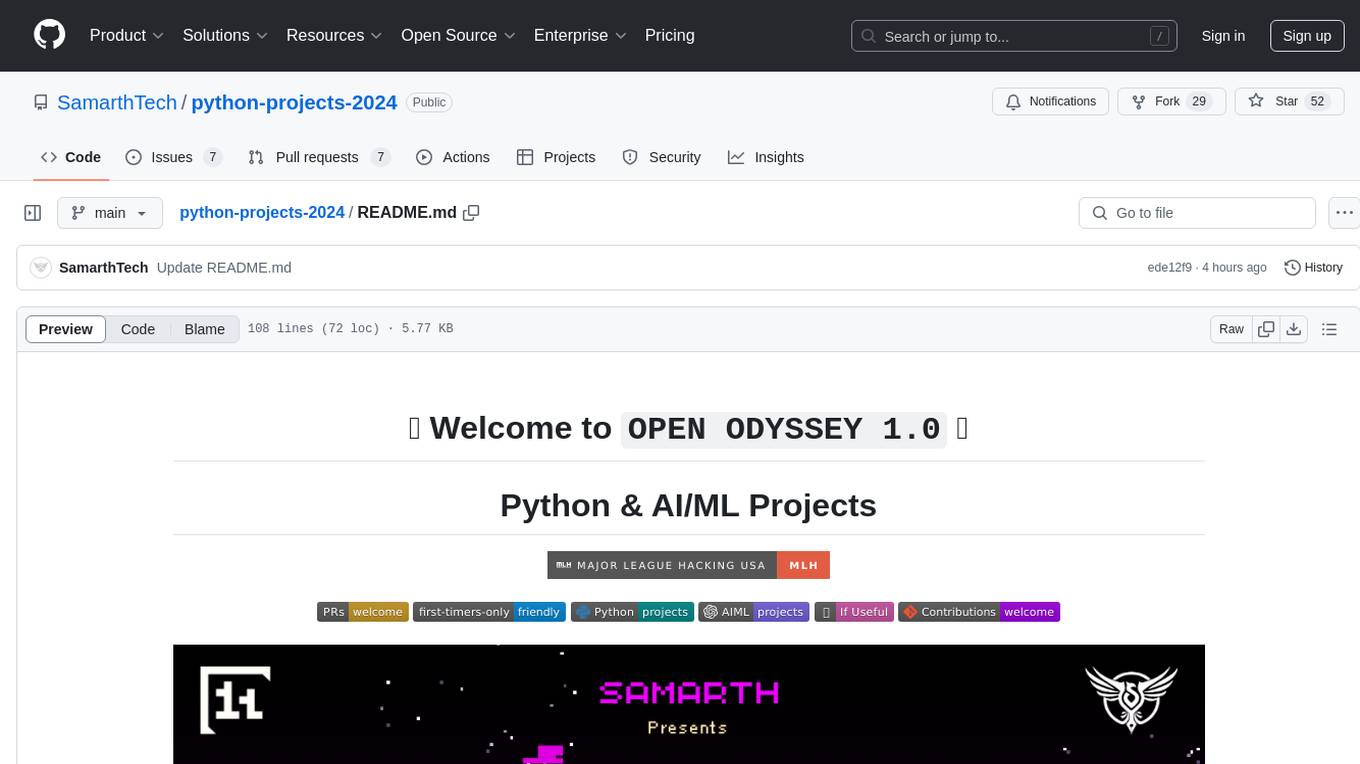
python-projects-2024
Welcome to `OPEN ODYSSEY 1.0` - an Open-source extravaganza for Python and AI/ML Projects. Collaborating with MLH (Major League Hacking), this repository welcomes contributions in the form of fixing outstanding issues, submitting bug reports or new feature requests, adding new projects, implementing new models, and encouraging creativity. Follow the instructions to contribute by forking the repository, cloning it to your PC, creating a new folder for your project, and making a pull request. The repository also features a special Leaderboard for top contributors and offers certificates for all participants and mentors. Follow `OPEN ODYSSEY 1.0` on social media for swift approval of your quest.
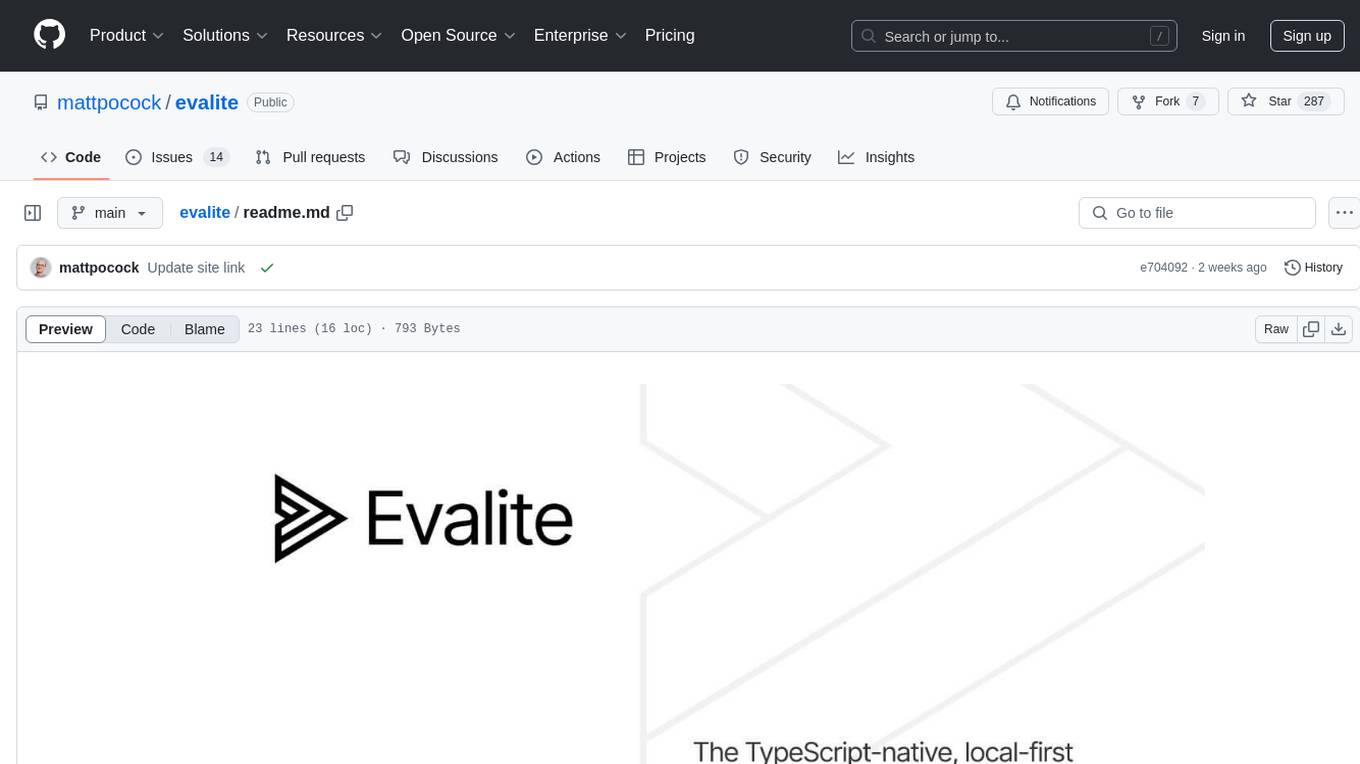
evalite
Evalite is a TypeScript-native, local-first tool designed for testing LLM-powered apps. It allows users to view documentation and join a Discord community. To contribute, users need to create a .env file with an OPENAI_API_KEY, run the dev command to check types, run tests, and start the UI dev server. Additionally, users can run 'evalite watch' on examples in the 'packages/example' directory. Note that running 'pnpm build' in the root and 'npm link' in 'packages/evalite' may be necessary for the global 'evalite' command to work.
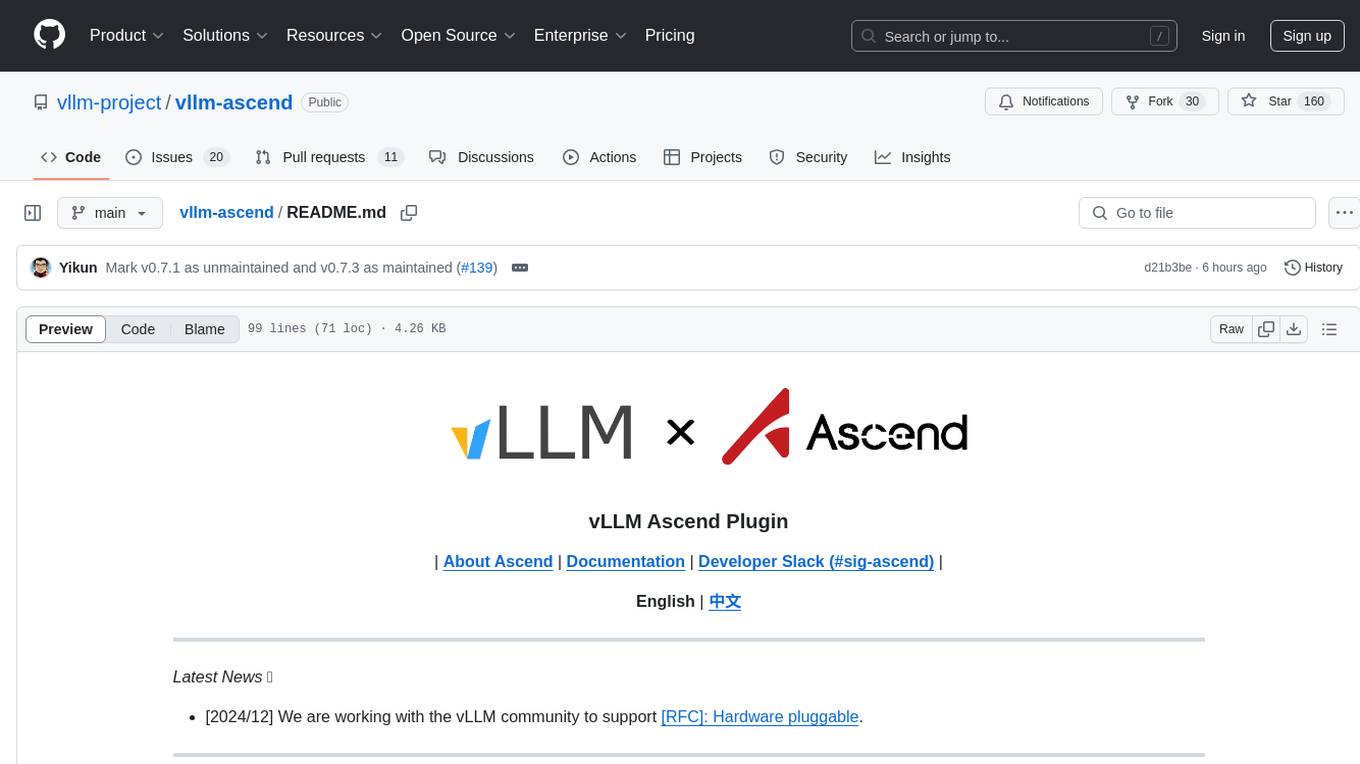
vllm-ascend
vLLM Ascend plugin is a backend plugin designed to run vLLM on the Ascend NPU. It provides a hardware-pluggable interface that allows popular open-source models to run seamlessly on the Ascend NPU. The plugin is recommended within the vLLM community and adheres to the principles of hardware pluggability outlined in the RFC. Users can set up their environment with specific hardware and software prerequisites to utilize this plugin effectively.
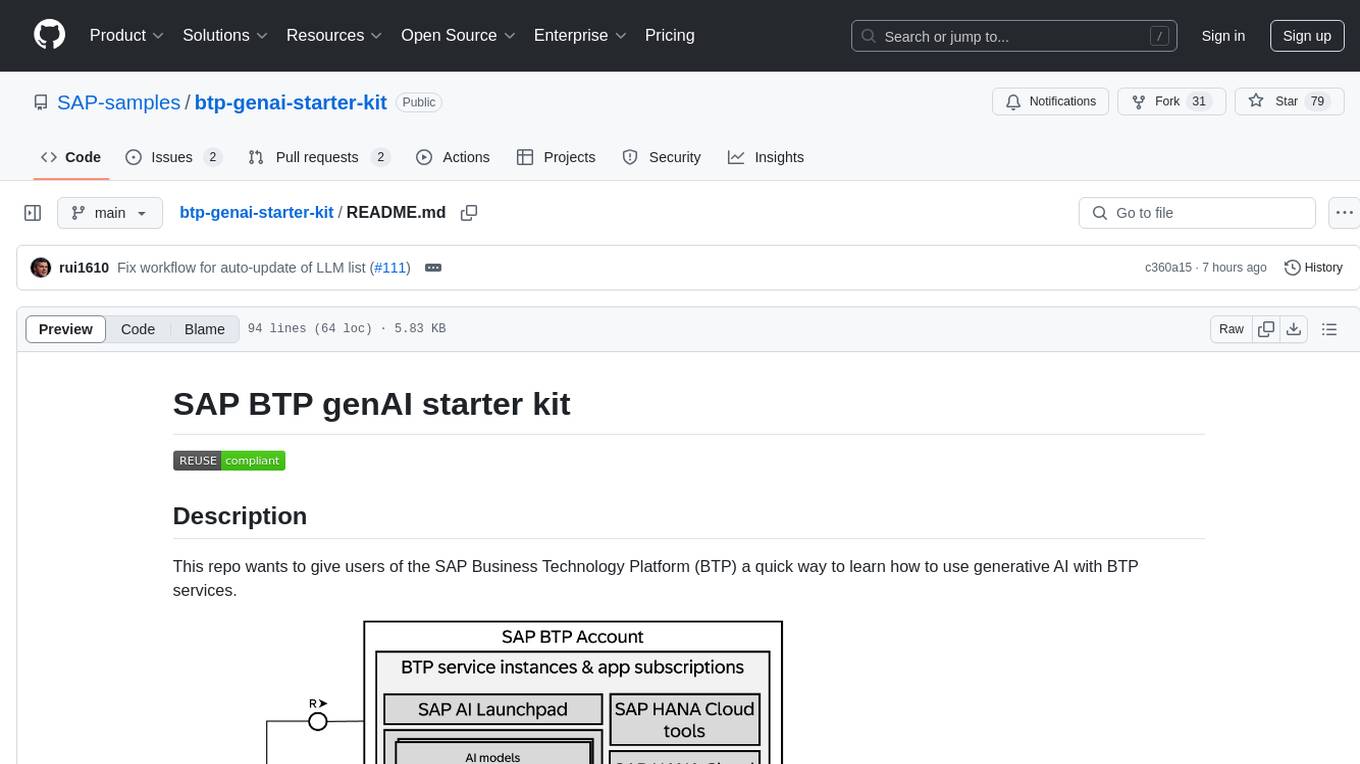
btp-genai-starter-kit
This repository provides a quick way for users of the SAP Business Technology Platform (BTP) to learn how to use generative AI with BTP services. It guides users through setting up the necessary infrastructure, deploying AI models, and running genAI experiments on SAP BTP. The repository includes scripts, examples, and instructions to help users get started with generative AI on the SAP BTP platform.
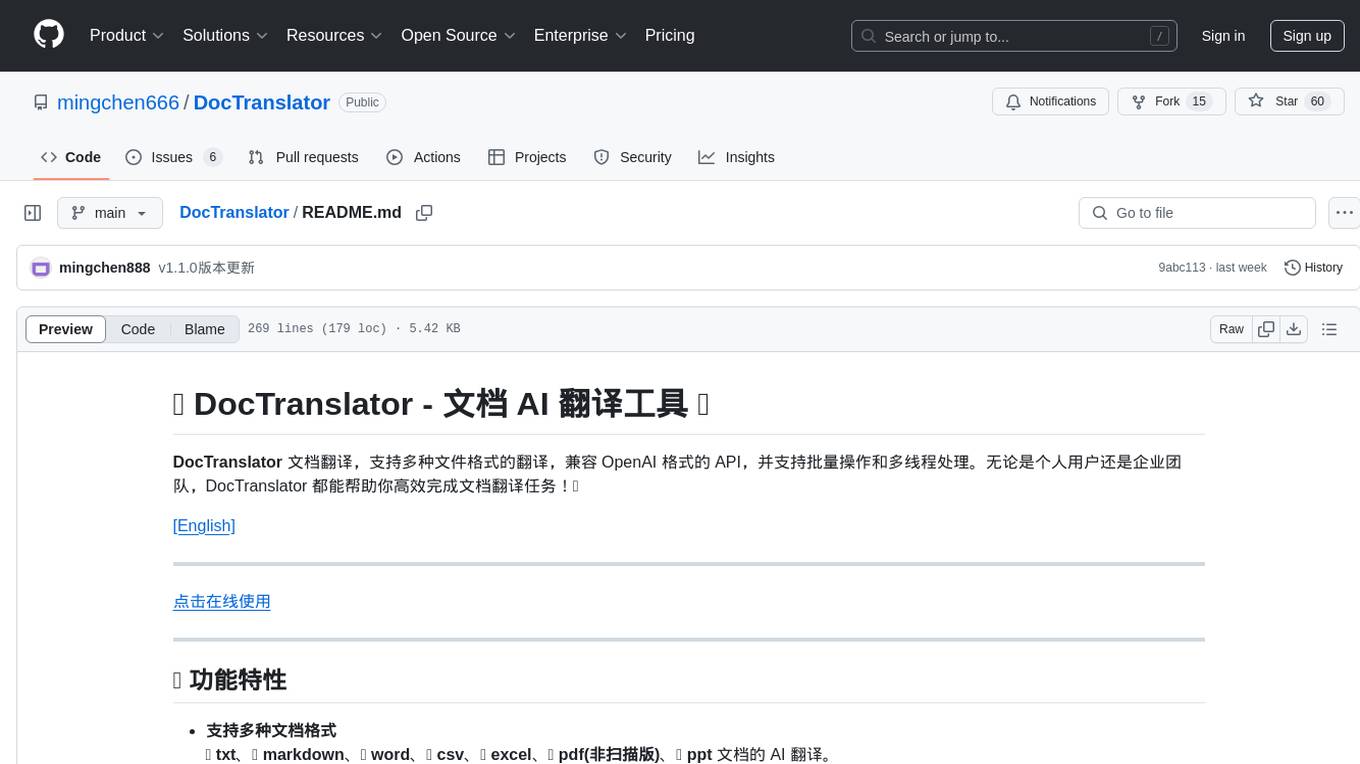
DocTranslator
DocTranslator is a document translation tool that supports various file formats, compatible with OpenAI format API, and offers batch operations and multi-threading support. Whether for individual users or enterprise teams, DocTranslator helps efficiently complete document translation tasks. It supports formats like txt, markdown, word, csv, excel, pdf (non-scanned), and ppt for AI translation. The tool is deployed using Docker for easy setup and usage.
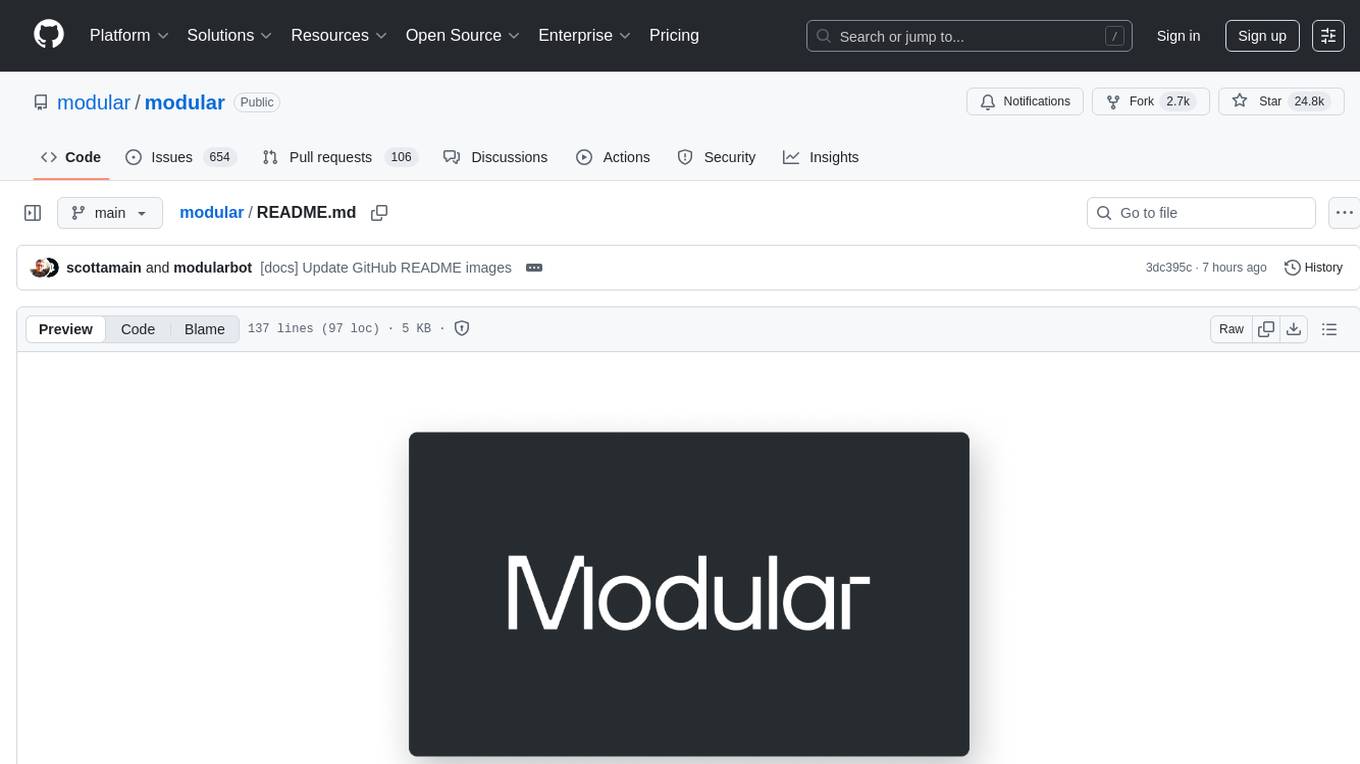
modular
The Modular Platform is a unified suite of AI libraries and tools designed for AI development and deployment. It abstracts hardware complexity to enable running popular open models with high GPU and CPU performance without code changes. The repository contains over 450,000 lines of code from 6000+ contributors, making it one of the largest open-source repositories for CPU and GPU kernels. Key components include the Mojo standard library, MAX GPU and CPU kernels, MAX inference server, MAX model pipelines, and code examples. The repository has main and stable branches for nightly builds and stable releases, respectively. Contributions are accepted for the Mojo standard library, MAX AI kernels, code examples, and Mojo docs.
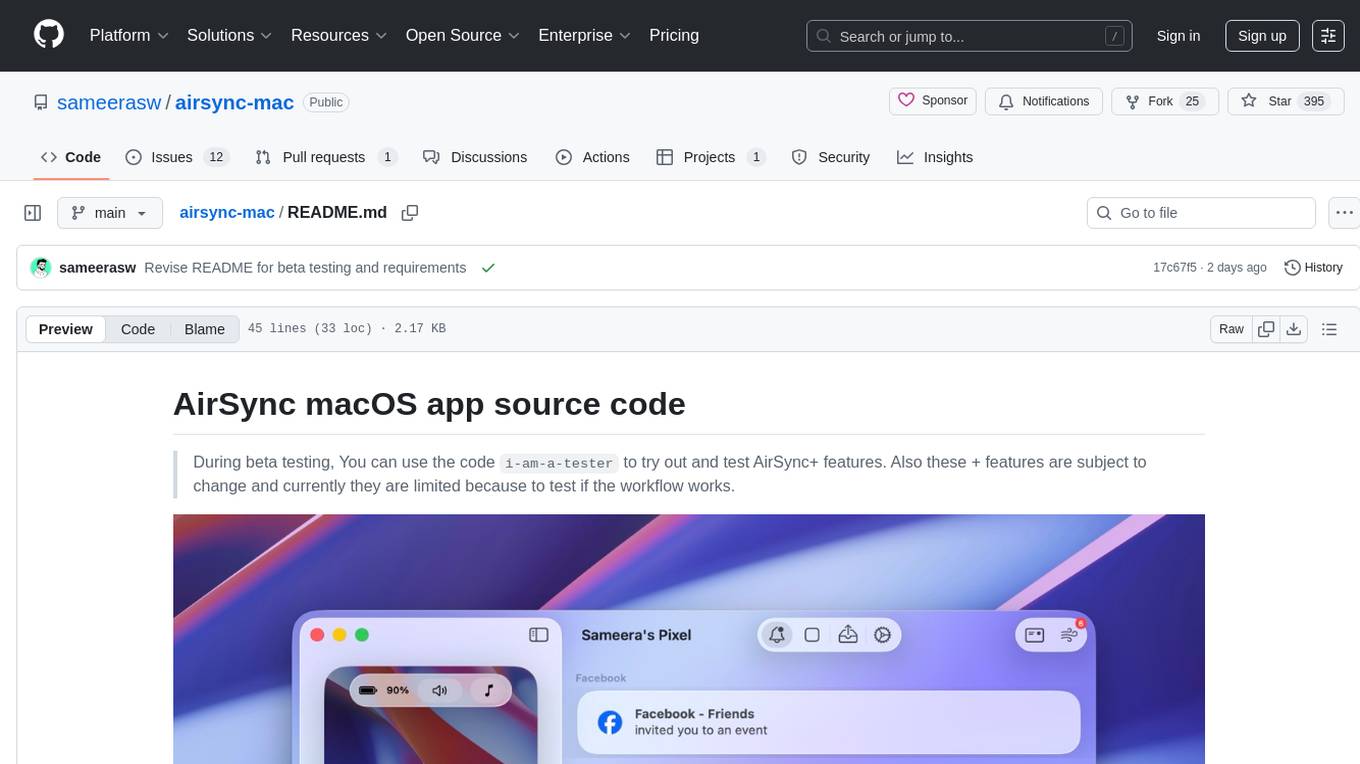
airsync-mac
AirSync macOS app source code for beta testing with limited features. Requires macOS 14.5 and additional installations of scrcpy, adb, and media-control brew. Contributors and libraries used are acknowledged in the repository.
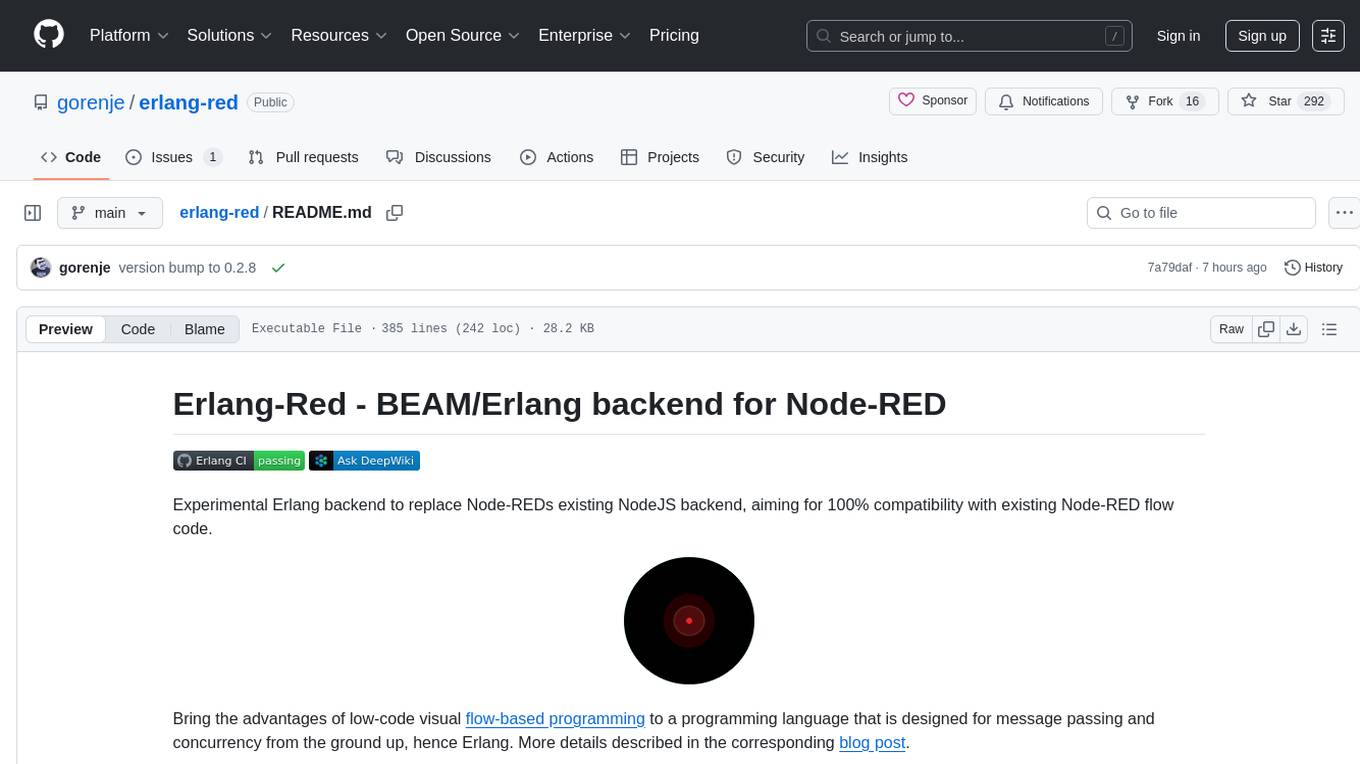
erlang-red
Erlang-Red is an experimental Erlang backend designed to replace Node-RED's existing NodeJS backend, aiming for 100% compatibility with existing Node-RED flow code. It brings the advantages of low-code visual flow-based programming to Erlang, a language designed for message passing and concurrency. The tool allows for creating data flows that describe concurrent processing with guaranteed concurrency and performance. Erlang-Red provides a visual flow editor for creating and testing flows, supporting various Node-RED core nodes and Erlang-specific nodes. The development process is flow-driven, with test flows ensuring correct node functionality. The tool can be deployed locally using Docker or on platforms like Fly.io and Heroku. Contributions in the form of Erlang code, Node-RED test flows, and Elixir code are welcome, with a focus on replicating Node-RED functionality in alternative programming languages.
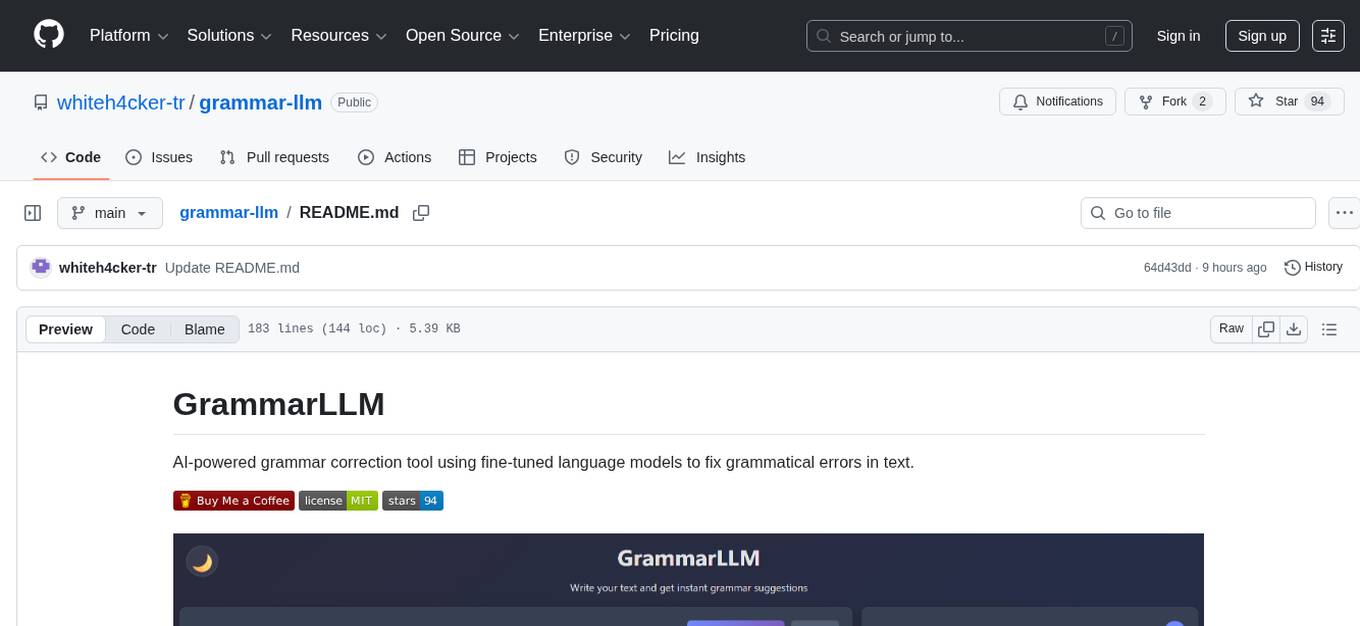
grammar-llm
GrammarLLM is an AI-powered grammar correction tool that utilizes fine-tuned language models to fix grammatical errors in text. It offers real-time grammar and spelling correction with individual suggestion acceptance. The tool features a clean and responsive web interface, a FastAPI backend integrated with llama.cpp, and support for multiple grammar models. Users can easily deploy the tool using Docker Compose and interact with it through a web interface or REST API. The default model, GRMR-V3-G4B-Q8_0, provides grammar correction, spelling correction, punctuation fixes, and style improvements without requiring a GPU. The tool also includes endpoints for applying single or multiple suggestions to text, a health check endpoint, and detailed documentation for functionality and model details. Testing and verification steps are provided for manual and Docker testing, along with community guidelines for contributing, reporting issues, and getting support.
14 - OpenAI Gpts
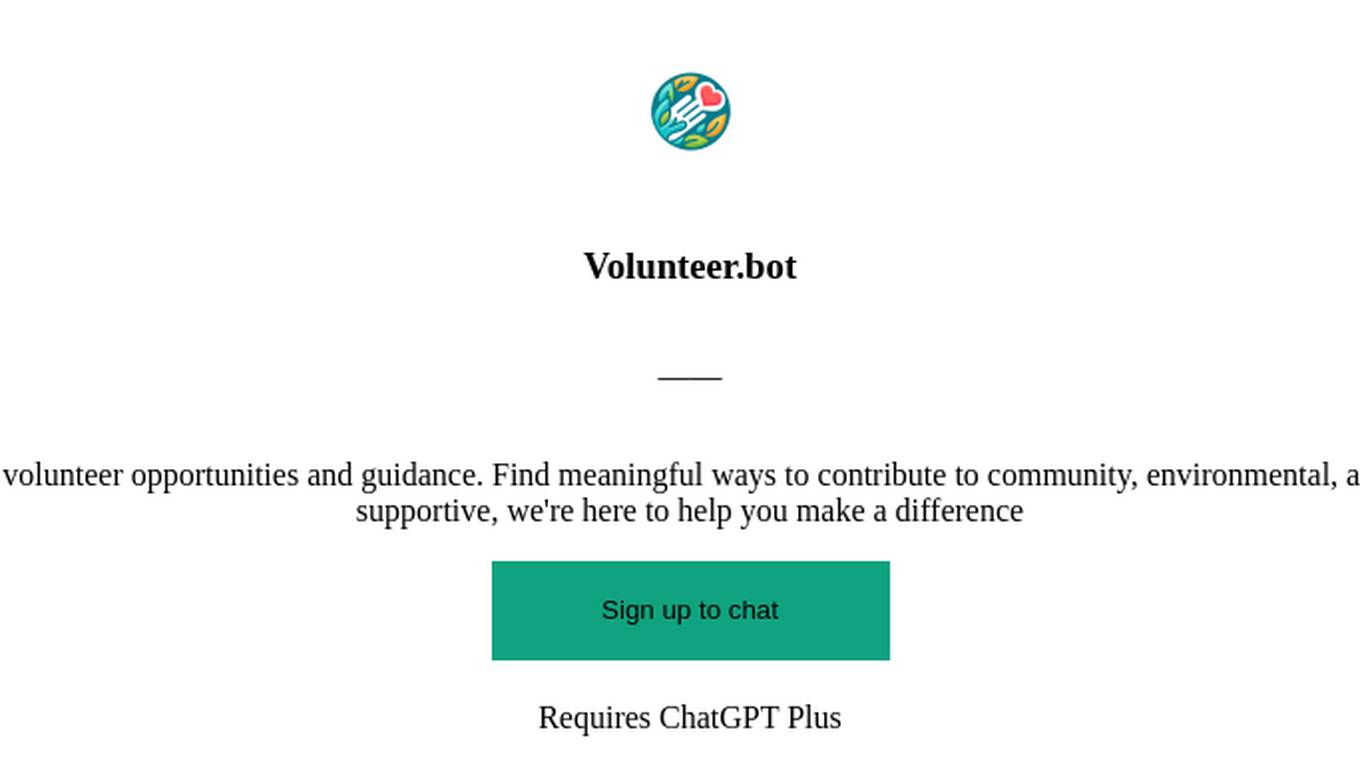
Volunteer.bot
Welcome to Volunteer.bot, your go-to AI for volunteer opportunities and guidance. Find meaningful ways to contribute to community, environmental, and global causes. Accessible, informative, and supportive, we're here to help you make a difference
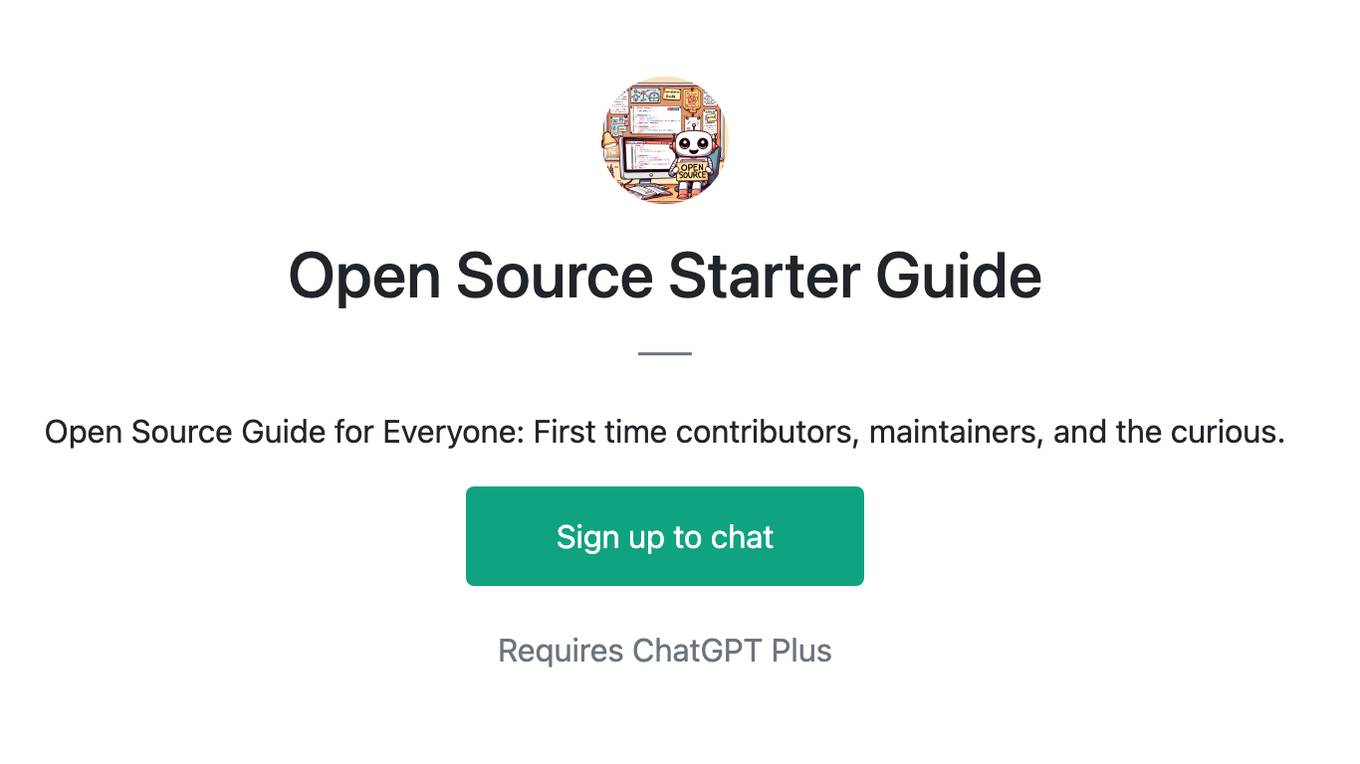
Open Source Starter Guide
Open Source Guide for Everyone: First time contributors, maintainers, and the curious.
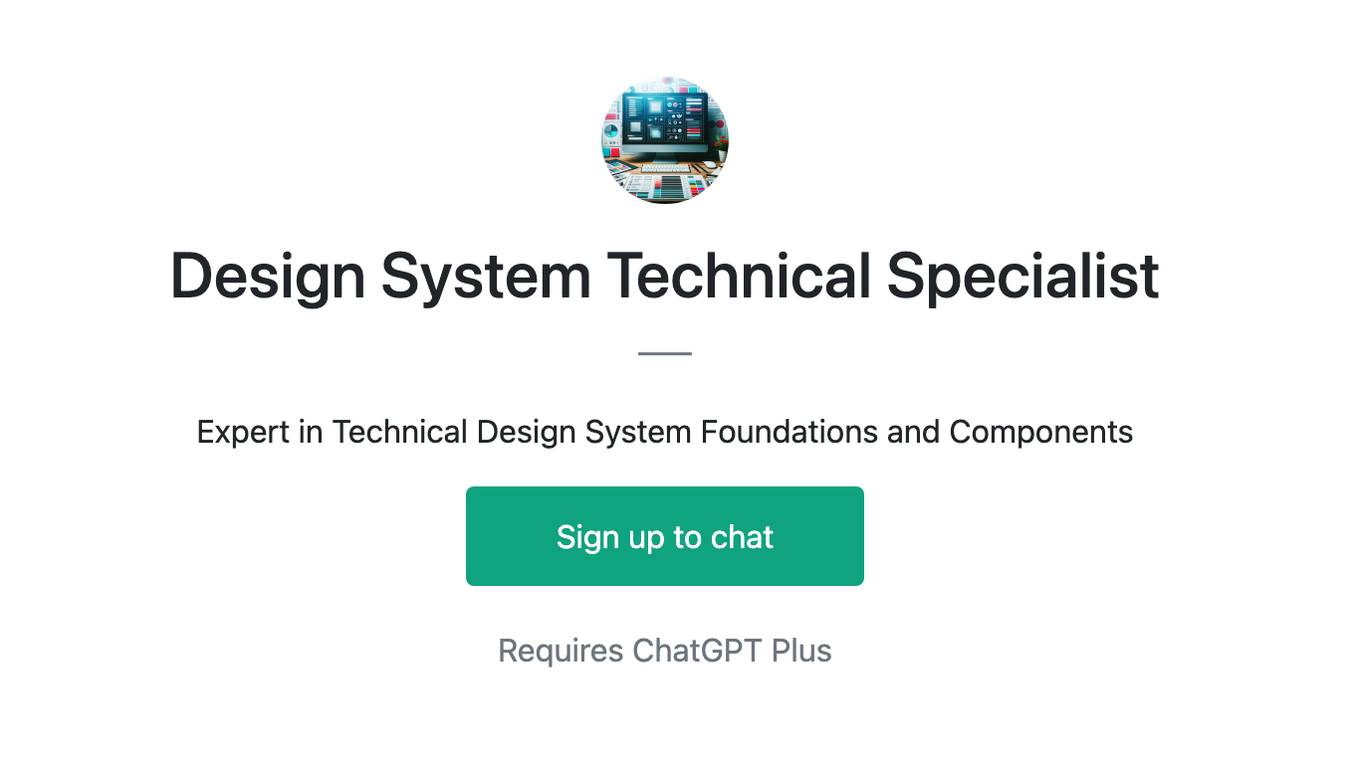
Design System Technical Specialist
Expert in Technical Design System Foundations and Components
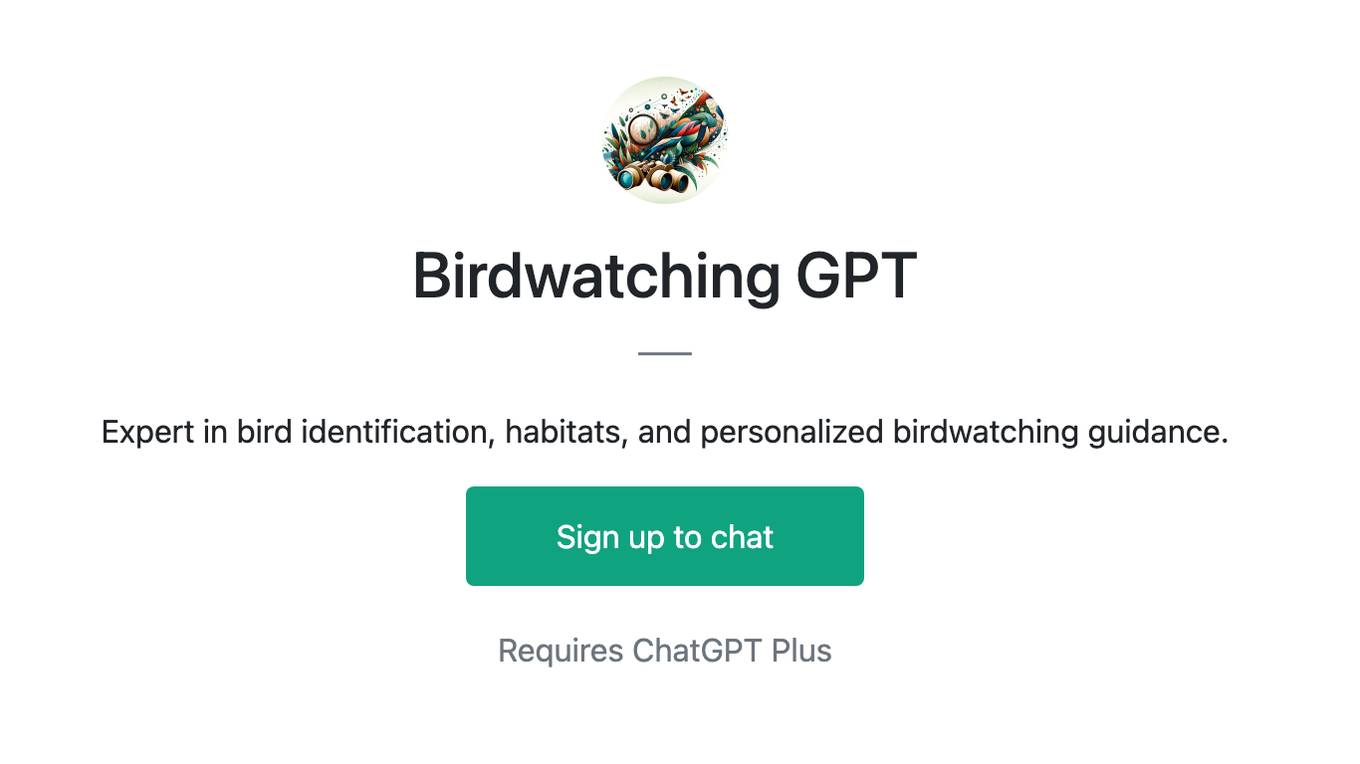
Birdwatching GPT
Expert in bird identification, habitats, and personalized birdwatching guidance.
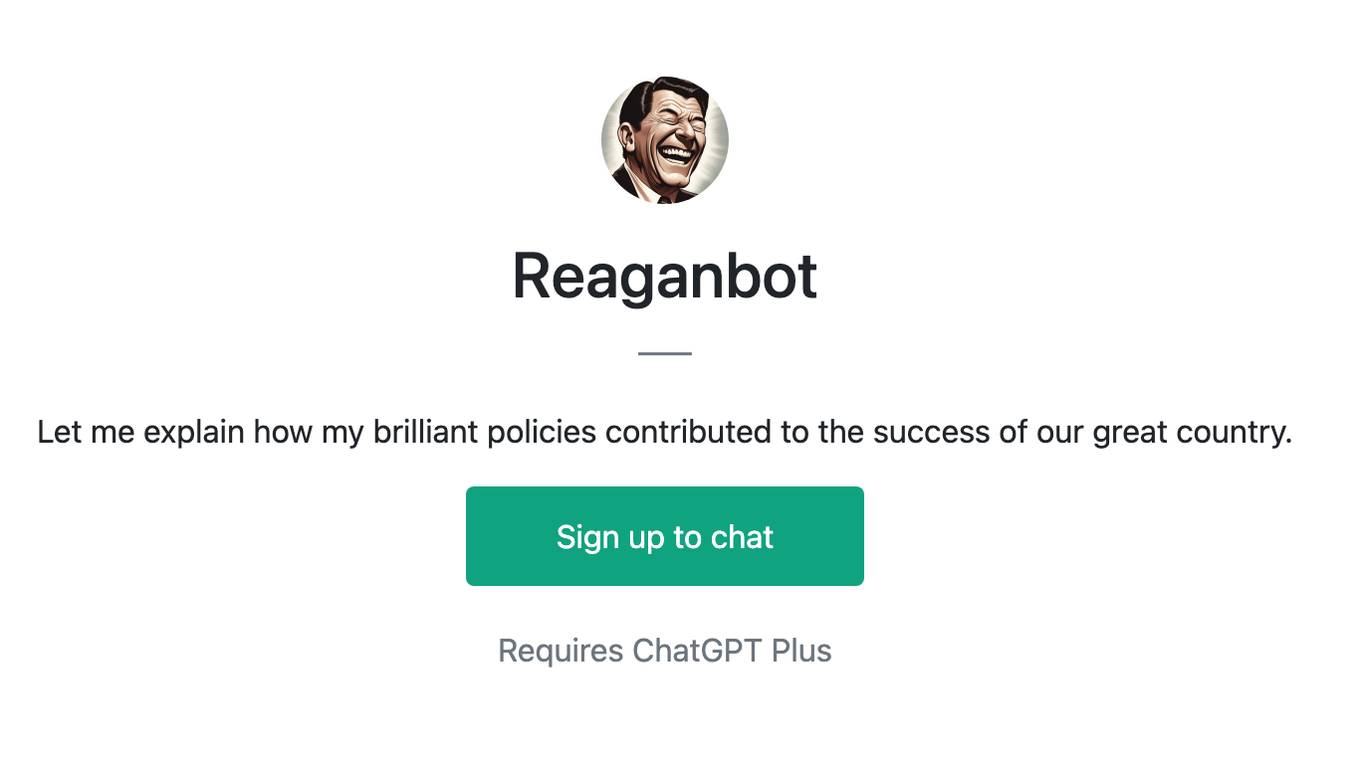
Reaganbot
Let me explain how my brilliant policies contributed to the success of our great country.
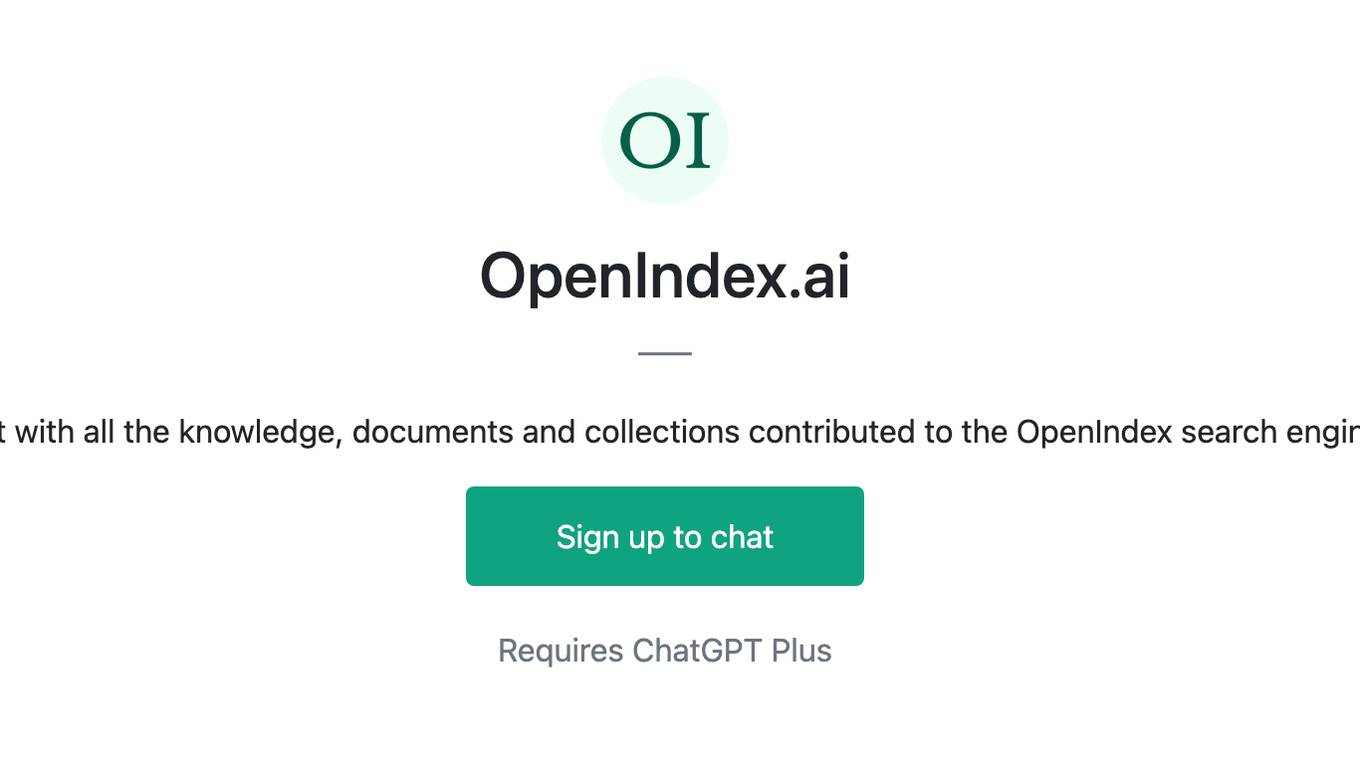
OpenIndex.ai
Chat with all the knowledge, documents and collections contributed to the OpenIndex search engine.

Web3 GPT
A Web3 expert providing in-depth knowledge on blockchain, cryptocurrencies, and more.
